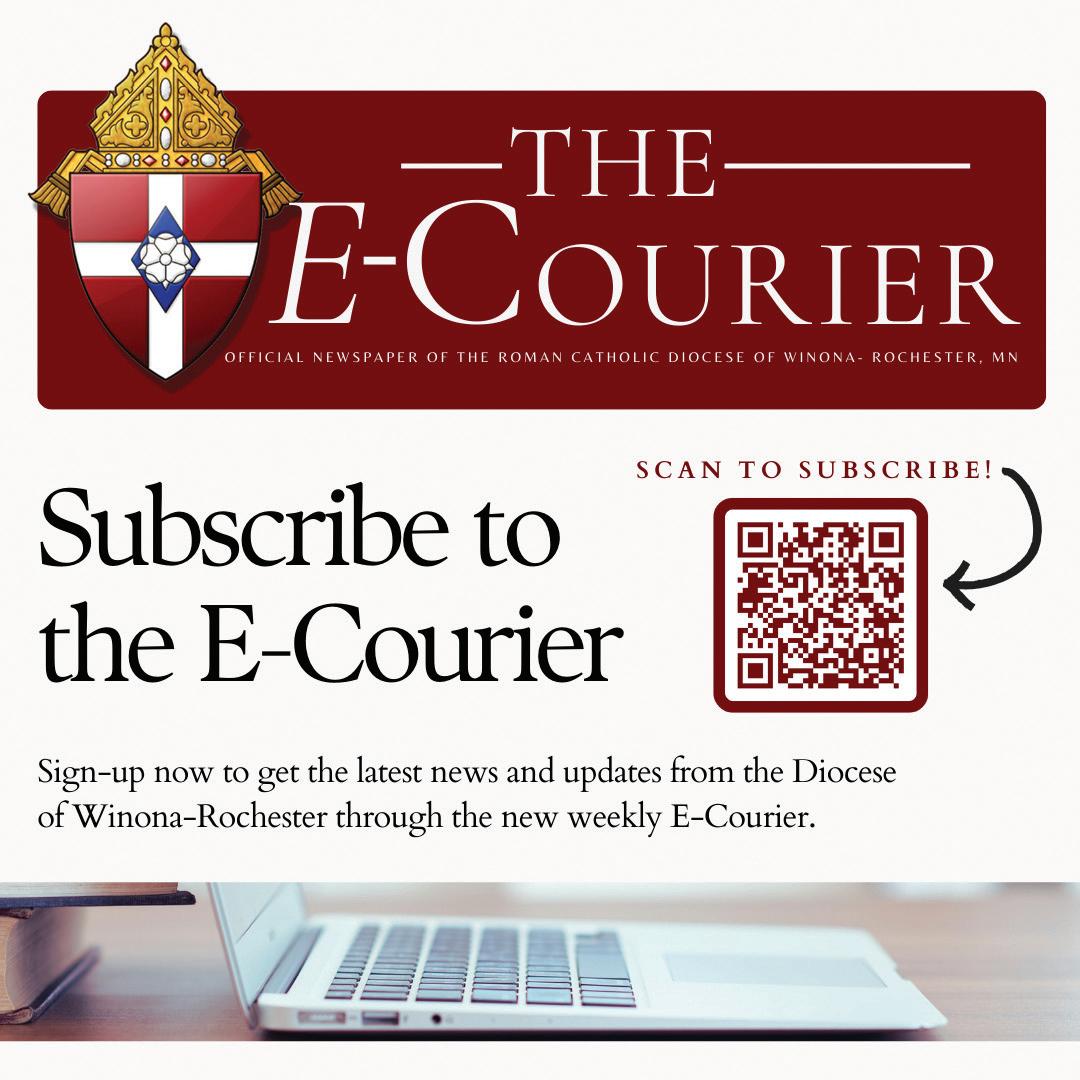





By PETER MARTIN
�his year's Beloved Women's Conference, held
The weekend began with a pre-conference Holy Hour of Adoration and social Friday evening, including entertainment by Immaculate Jazz (a band made up of our very own IHM seminarians).
On Saturday, Crystalina Evert inspired and
Beloved, cont'd on pg. 10

By JOHN MOLSEED, Post Bulletin
The following article was first published by the Rochester Post Bulletin on September 8, 2024, under the headline "Rochester-Winona diocese opens 'crown jewel' pastoral center for new headquarters." It is reprinted here with permission.
ROCHESTER - The administrative center of the Diocese of Winona-Rochester has moved closer to its geographical center.
Worshipers and partners of the diocese and representatives from diocesan churches officially marked the opening of a new pastoral center in northwest Rochester Sunday, Sept. 8, 2024. For the first 133 years of its history, the diocese was headquartered in Winona, Minnesota.
Hundreds of people gathered to hear words of thanks, prayer and sing hymns and witness

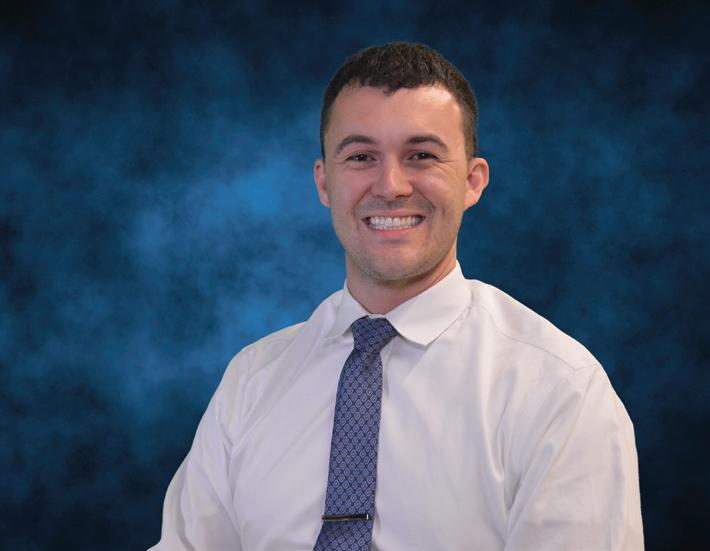

By CINDY WOODEN, Catholic News Service
VATICAN CITY, Sep. 20, 2024 (CNS) - Maybe it is a sign of aging, Pope Francis said, but he is increasingly concerned about what kind of world he and his peers will leave for younger generations -- and the prognosis is not good.
"This isn't pessimism," the pope told about two dozen representatives of popular movements and grassroots organizations meeting Sept. 20 at the Dicastery for Promoting Integral Human Development.
Pope Francis said he feared adults are leaving behind "a world discouraged, inferior, violent, marked by the plundering of nature, alienated by dehumanized modes of communication," and "without the political, social and economic paradigms to lead the way, with few dreams and enormous threats."
But, he said, if people join forces, especially with those who are most often the victims, things can change.
The Courier is the
And he prayed that "the cry of the excluded" would "awaken the slumbering consciences of so many political leaders who are ultimately the ones who must enforce economic, social and cultural rights."
Pope Francis was meeting with representatives of movements and organizations from Europe, North and South America, Africa and Asia, including those that organize informal workers who collect and recycle trash, gather people who live in the informal settlements on the outskirts of cities, rally citizens to promote care of the environment, assist subsistence farmers and rescue migrants at sea.
Cardinal Michael Czerny, prefect of the Dicastery for Promoting Integral Human Development, told the representatives that "justice cannot be an intellectual or even a juridical matter. It must be rooted deep within us, as urgent and impossible to ignore as hunger and thirst."
Future of Hope, cont'd on pg. 3
publication of the Diocese of Winona-Rochester 2907 Jeremiah Lane NW, Rochester, MN, 55901 Vol 115 - 10
Most Reverend Robert E. Barron, Publisher Nick Reller, Associate Editor
Telephone: 507-361-3068 E-mail: nreller@dowr.org
Publishing Schedule: Monthly - Deadline for advertising & articles is the 10th of the month prior. (ISSN 0744-5490)
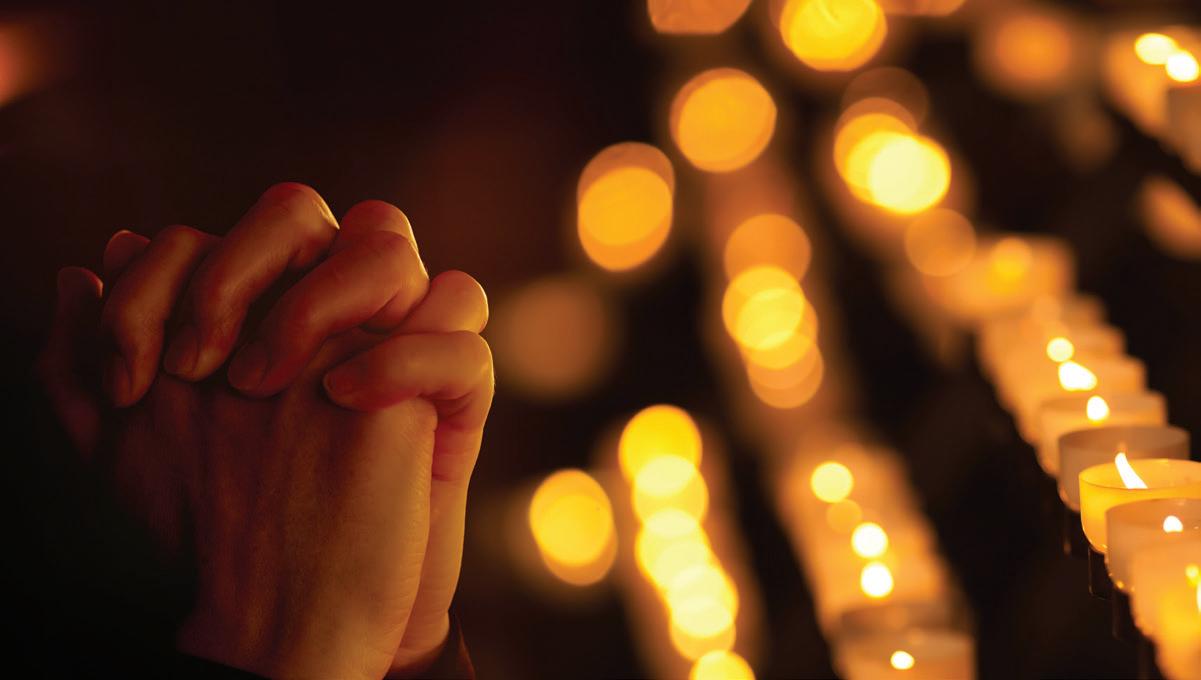
We pray that the Church continue to sustain in all ways a Synodal lifestyle, as a sign of co-responsibility, promoting the participation, the communion and the mission shared among priests, religious and lay people.
the following:
Parochial Administrator
Very Rev. William Thompson: appointed Parochial Administrator of St. Felix Parish in Wabasha and St. Agnes Parish in Kellogg, effective September 3, 2024.
College of Consultors
Rev. Glenn Frerichs: reappointed to a five-year term on the College of Consultors, effective August 4, 2024.
Rochester Catholic Schools
Rev. James Steffes: appointed Co-Chair of Rochester Catholic Schools Board of Trustees, effective August 6, 2024.
Legion of Mary
• Hard copies are distributed at DOW-R parishes on the first weekend of each month.
• An online version may be viewed at www.dowr.org/offices/ courier/index.html
• To be added to the home delivery list free of charge, readers should send their names and addresses to:
Diocese of Winona-Rochester The Courier 2907 Jeremiah Lane NW Rochester, MN 55901 or nreller@dowr.org
Rev. Alex Salazar, IVE: appointed Spiritual Director for the Legion of Mary, Our Lady Queen of the Universe Mankato Curia, effective August 1, 2024. Resignation
Rev. Prince Raja: resigned as Pastor of St. Felix Parish in Wabasha and St. Agnes Parish in Kellogg, effective September 3, 2024.
The Diocese of Winona-Rochester will provide a prompt, appropriate and compassionate response to reporters of sexual abuse of a child by any diocesan agent (employees, volunteers, vendors, religious or clergy). Anyone wishing to make a report of an allegation of sexual abuse should call the Victim Assistance Coordinator at 507-454-2270, Extension 255. A caller will be asked to provide his or her name and telephone number. Individuals are also encouraged to take their reports directly to civil authorities. The Diocese of Winona-Rochester is committed to protecting children, young people and other vulnerable people in our schools, parishes and ministries. The diocesan policy is available on the diocesan web site at www.dow.org under the Safe Environment Program. If you have any questions about the Diocese of Winona-Rochester’s implementation of the Charter for the Protection of Children and Young People, please contact Mary Hamann at 507-858-1244, or mhamann@dowr.org.
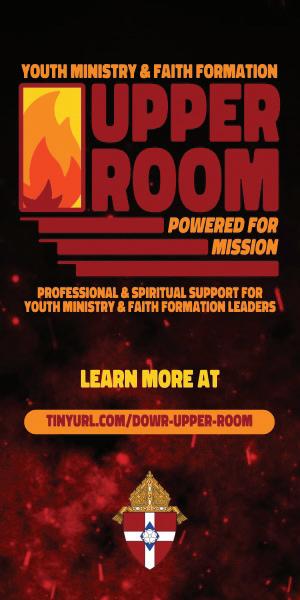

"To raise our voices for the voiceless," the cardinal said, Christians must follow the example of Jesus and be "humble, not caught up in pride, success, money and fame; in solidarity with those who suffer, capable of weeping with them and comforting them; meek, acting without violence or boasting, but with a deep thirst for justice."
Pope Francis told the leaders that the injustices that keep too many people poor, malnourished, unemployed and on the margins of their community's social and political life fuel violence and ultimately war.
Gloria Morales-Palos, a member of Christ the King Parish in San Diego and an officer in the local, state and national offices of the PICO Network, a faith-based community organizing group, told Catholic News Service she feared Pope Francis was right; "In America, this is the first generation of children who will not be better off than their parents."
"The political environment is very harsh right now and scary for many Latinos," especially those who have family members in the United States without legal papers, she said.
"The immigration laws are old, broken and need to change," Morales-Palos said. "People always say, 'They should get in line,' but there is no line."
Pope Francis told the group that he has been criticized for never speaking up for the middle
class, "and I apologize for that," he said. But at the same time, "it was Jesus who put the poor at the center."
"Millionaires should pay more taxes," the pope said. They draw their wealth from the goods of creation, which God made for everyone, and from which everyone should benefit.
People with money like to speak of the economy as a "meritocracy," but oftentimes, they are rich through no merit of their own, he said. Their money comes from "inheritance, they are fruit of the exploitation of people, of the pollution of nature," or "they derive it from corruption or from organized crime."
"The blind competition to have more and more money is not a creative force, but an attitude, a path to perdition," the pope said. "It is reckless, immoral, irrational behavior. It destroys creation and people's lives."
Too many people, and not just the rich, want to have someone they can look down on so they feel superior, he said. They "look from afar, look from above, look with indifference, look with disrespect, look with hate."
"This is how the silence of indifference is exercised," the pope said, and "it is silence and indifference that enliven the roar of hate. Silence in the face of injustice opens the way to social division. And social division opens the way to violence."
The answer and the key to hope is love, he said. The fight for social justice, for respect for the sacredness of all human life and for care for creation must all be motivated by love.
By JUSTIN MCLELLAN, Catholic News Service
VATICAN CITY (CNS) -- While people can get caught up in the pursuit of power and greatness, Jesus teaches that true power is found in the humility of being a servant to the most vulnerable, Pope Francis said.
Before praying the Angelus Sept. 22, the pope reflected on the day's Gospel reading from St. Mark in which the disciples are discussing who among them is the greatest, a conversation they were reluctant to share with Jesus.
"While Jesus confided in them the meaning of his very life, they were talking about power, and so now shame closes their mouths just as pride has closed their hearts earlier," the pope said. Yet Jesus responds to the conversation by saying, "If anyone wishes to be first, he shall be the last of all and the servant of all."
Jesus asks his disciples, "Do you want to be great? Make yourself small, put yourself at the service of all," the pope said.
That teaching "renews our way of living," he said. Jesus "teaches us that true power does not lie in the dominion of the strongest, but in care for the weakest. True power is taking care of the weakest -- this makes you great!"
Pope Francis said that is why Jesus then places a child before the disciples and tells them, "Whoever receives one child such as this in my name, receives me."
"The child has no power; the child has needs," the pope said. "When we take care of humanity, we recognize that humanity is always in need of life."
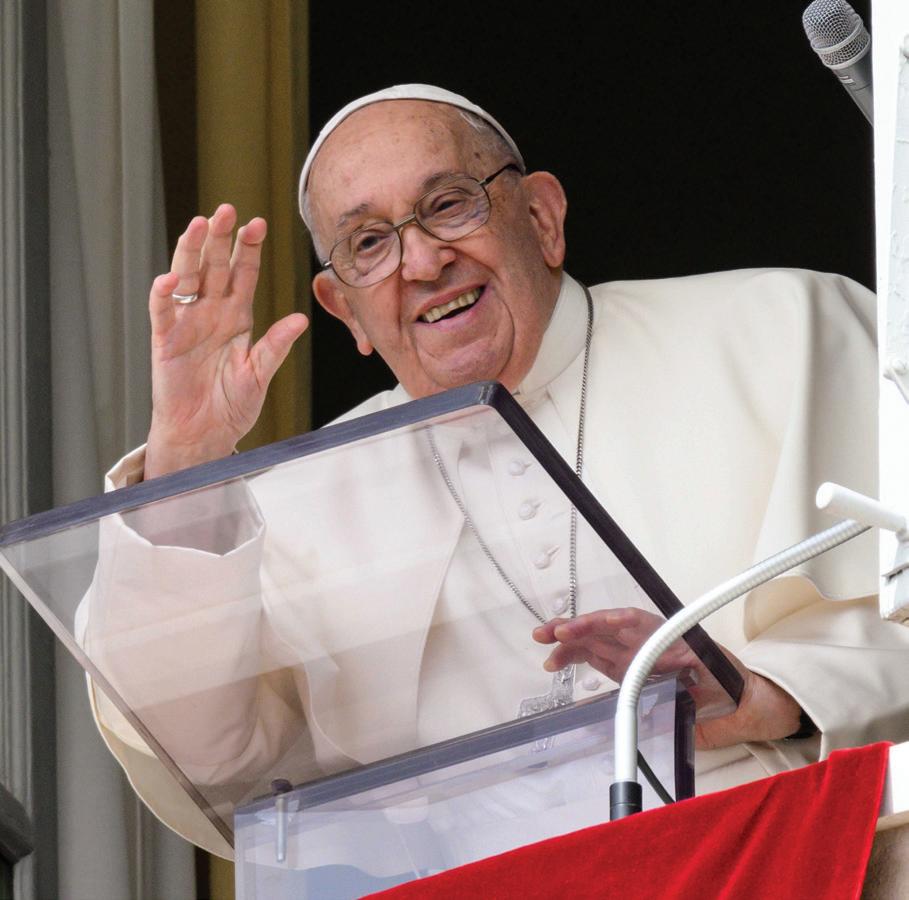
All people "are alive because we have been welcomed," he said. "But power makes us forget this truth. You are alive because you have been welcomed!"
By embracing conventional notions of power, however, "we become dominators, not servants, and the first to suffer as a result are the last: the little ones, the weak, the poor," he said.
"Brothers and sisters, how many people, how many, suffer and die because of power struggles," he said, noting that they are lives "that the world denies," just as it denied Jesus.
"However, the Gospel remains living and filled with hope," the pope said. "He who has been denied is risen, is the Lord!"
� s I compose these words, I am preparing to depart for Rome and the second session of the Synod on Synodality.
I was elected by my brother bishops two years ago as a delegate to this gathering and I participated in the first round last October.
As I shared with you a year ago, the Synod is a lot of work! It lasts four full weeks, and we meet Monday through Saturday, from 8:30 a.m. until 7:30 p.m. Though many of us asked the organizers to adjust the calendar this year and give us a bit more free time, they have kept it pretty much the same. In line with Pope Francis’s instincts, the Synod is an exercise in dialogue, and these conversations take place in small groups, in the plenary sessions, and perhaps most effectively during the coffee breaks. That last comment is not a joke. I found last year that the informal time spent mingling among the nearly 400 delegates from all over the world allowed for the most fruitful and interesting encounters.
For me, the best part of the Synod is precisely this opportunity to make connections with an extraordinary variety of Catholic leaders. I look forward to re-establishing my friendship with Bishop Stefan Oster of Passau in Bavaria, a man I’ve come very much to admire; and with Archbishop John Wilson, whom I’ve known for many years and who is
one of the most eloquent and effective leaders of the Catholic Church in the UK; and with Archbishop Anthony Fisher of Sydney, one of the most pivotal figures in the Englishspeaking Church; and with Ms. Kelly Paget, a wonderful lay leader of the Church in Australia; and with Cardinal Chow of Hong Kong, who, I discovered last year, did his undergraduate study in Duluth; and indeed with Bishop Georg Batzing, the head of the German bishops’ conference, a man with whom I frankly disagree on most theological issues but with whom I established a friendly rapport last year.
Well, what will we talk about? The parameters of our conversation have been set by the Instrumentum Laboris or “working document” which all the delegates are encouraged to read carefully in advance of the meeting. There are a few themes in the Instrumentum to which I would like to draw your attention. First, the “hotbutton” issues of women’s ordination, married clergy, and outreach to the LGBT community are basically off the table, for they have been relegated to the deliberations of study groups. Since they will not be the focus of our discussion, the Synod can return to the theme that the Pope originally assigned to us, namely, synodality itself. Indeed, the title of the Instrumentum Laboris is precisely “How to be a Missionary Synodal Church.” As such, it is an exercise in what I would call practical ecclesiology, that is, it seeks to explore how we make our understanding of the Church concrete in
terms of institutions and practices. For instance, it calls for the development, across the international Church, of lay pastoral councils, finance councils, various organs of accountability, etc. A point that I made often in the first round of the Synod is that, in our country, most of these “synodal” institutions are already in place. In any case, how to implement and strengthen them will be a major focus of our conversations.
A related motif of the Instrumentum is the involvement of more laity, especially women, in the governance of the Church, in both “decision-making” and “decision-taking.” At all levels of consultation prior to the first round of the Synod and very much at the Synod itself, the question of women’s participation in the life of the Church was brought forward with energy. I was gratified to read in the Instrumentum that the role of the bishop as principle of unity and final decision-maker was clearly re-affirmed as part of the apostolic heritage of the Church, but I was also pleased to see that both lay men and lay women were being summoned to take part in the governance of the community. Here again, I frequently pointed out at the last Synodal gathering that, at least in the American setting, women already play a very prominent role in ecclesial life. Based on my experience in the Archdiocese of Chicago, the Archdiocese of Los Angeles, and now in my own Diocese of WinonaRochester, I can say that women occupy central, even dominant, positions on most parish staffs and chancery offices. In the case of Winona-Rochester,
of the 38 people that work in the chancery, 23 are women. This, of course, is not to imply that all is well in this regard, but it is to suggest that perhaps the American model might be one to imitate in other parts of the Church.
Another topic that runs through the new Instrumentum is that of listening. As you undoubtedly know, the Pope has rather consistently stressed that listening to one another is essential to synodality. But what emerges with particular clarity in this year’s preparatory document is that the first and most important listening we undertake is not to one another but to the Holy Spirit. And if we do listen to each other, it is so that we might together discern the voice of the Spirit. I think this is an important corrective to a tendency last year to construe synodality in a congregationalist or democratic manner, as though the Church is governed by the consensus that emerges from the dialogue among the baptized. This time, the more robustly supernatural dimension of synodality is brought into the light.
I would like to make a final observation with respect to the method used throughout the synodal process, namely, the so-called “conversations in the Spirit.” The Instrumentum states, boldly enough, that there was practically universal celebration of this method. I, for one, would not share such unrestrained enthusiasm. On the positive side, the method compels us, at key moments in the conversation, to pause
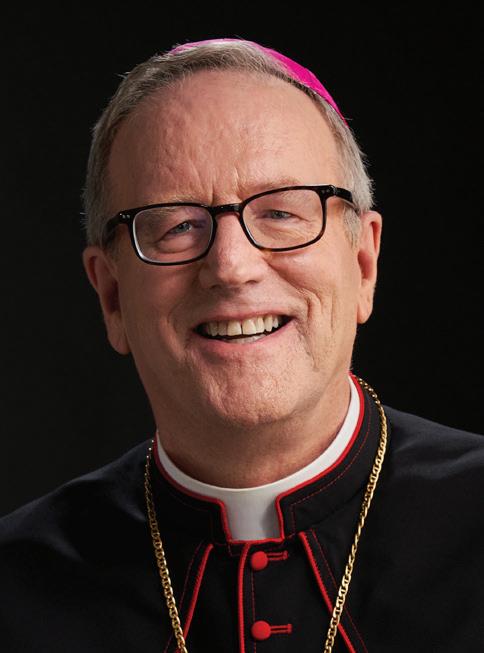
and pray. This is all to the good, and for reasons both practical and spiritual. Furthermore, in insisting that each member of the discussion circle is obliged to make a substantive opening statement, it holds off the possibility that the more articulate and extroverted participants might dominate the conversation. On the negative side, I found that the tight control over the dialogue and the hyperinsistence on mutual listening often made things a bit stilted and obviated real exchange, argument, and engagement of the issues. Perhaps it was good that we did a good deal of listening to each other in the first round, but my hope is that we might get into some creative disagreement this time around.
All of that said, I leave for Rome with real eagerness and enthusiasm. Could I ask all of you please to pray for the hundreds of us who will be assembling in the Paul VI Audience Hall to listen, speak, argue, and decide - all under the gaze of the successor of Peter?
Por EL OBISPO ROBERT BARRON
�ientras escribo estas palabras, me preparo para partir hacia Roma y la segunda sesión del Sínodo sobre la Sinodalidad. Fui elegido por mis hermanos obispos hace dos años como delegado a este encuentro y participé en la primera ronda el pasado mes de octubre. Como compartí con ustedes hace un año, ¡el Sínodo es mucho trabajo! Dura cuatro semanas completas, y nos reunimos de lunes a sábado, de 8:30 de la mañana a 7:30 de la tarde. Aunque muchos de nosotros pedimos a los organizadores que ajustaran el calendario este año y nos dieran un poco más de tiempo libre, lo han mantenido prácticamente igual. Siguiendo el instinto del Papa Francisco, el Sínodo es un ejercicio de diálogo, y estas conversaciones tienen lugar en pequeños grupos, en las sesiones plenarias y, quizás de forma más eficaz, durante las pausas para el café. Este último comentario no es una broma. El año pasado comprobé que el tiempo informal dedicado a mezclarse entre los casi 400 delegados de todo el mundo propiciaba los encuentros más fructíferos e interesantes. Para mí, lo mejor del Sínodo es precisamente la oportunidad de establecer contactos con una extraordinaria variedad de líderes católicos. Estoy deseando reanudar mi amistad con Mons. Stefan Oster, obispo de Passau (Baviera), a quien admiro profundamente; con el señor arzobispo Mons. John Wilson, a quien conozco desde hace muchos años y que es uno de los líderes más elocuentes y eficaces de la Iglesia católica en el Reino Unido; con monseñor Anthony Fisher, arzobispo de Sydney, una de las figuras más importantes de la Iglesia de habla inglesa; con la Sra. Kelly Paget, una maravillosa líder laica de la Iglesia en Australia; y con el cardenal Chow, de Hong Kong, quien, según descubrí el año pasado, cursó sus estudios universitarios en Duluth, MN; y, por supuesto, con el obispo Georg Batzing, jefe de la Conferencia Episcopal Alemana, un hombre con el que francamente discrepo en la mayoría de las cuestiones teológicas, pero con el que establecí una amistosa relación el año pasado.
Bueno, ¿de qué hablaremos? Los parámetros de nuestra conversación han sido fijados por el Instrumentum Laboris o «documento de trabajo» que se recomienda a todos los delegados que lean detenidamente antes de la reunión. Hay algunos temas en el Instrumentum sobre los que me gustaría llamar su atención. En primer lugar, los temas «candentes» de la ordenación de mujeres, el clero casado y el acercamiento a la comunidad LGBT están básicamente fuera de la mesa, ya que han sido relegados a las deliberaciones de los grupos de estudio. Dado que no serán el centro de nuestra discusión, el Sínodo puede volver al tema que el Papa nos asignó originalmente, a saber, la sinodalidad misma. De hecho, el título del Instrumentum Laboris es precisamente «Cómo ser una Iglesia sinodal misionera». Como tal, es un ejercicio de lo que yo llamaría eclesiología práctica,
es decir, trata de explorar cómo concretamos nuestra comprensión de la Iglesia en términos de instituciones y prácticas. Por ejemplo, pide el desarrollo, en toda la Iglesia internacional, de consejos pastorales laicos, consejos de finanzas, diversos órganos de rendición de cuentas, etc. Un punto que señalé a menudo en la primera ronda del Sínodo es que, en nuestro país, la mayoría de estas instituciones «sinodales» ya existen. En cualquier caso, el modo de ponerlas en marcha y reforzarlas será uno de los principales temas de nuestras conversaciones. Un motivo relacionado del Instrumentum es la participación de más laicos, especialmente mujeres, en el gobierno de la Iglesia, tanto en la “elaboración de decisiones” como en la “toma de decisiones”. En todos los niveles de consulta previos a la primera ronda del Sínodo, y en gran medida en el Sínodo mismo, se planteó con energía la cuestión de la participación de las mujeres en la vida de la Iglesia. Me complació leer en el Instrumentum que el papel del obispo como principio de unidad y responsable último de la toma de decisiones se reafirmaba claramente como parte de la herencia apostólica de la Iglesia, pero también me alegró ver que se convocaba tanto a laicos como a laicas a participar en el gobierno de la comunidad. También en este caso señalé con frecuencia en la última reunión sinodal que, al menos en el ámbito estadounidense, las mujeres desempeñan ya un papel muy destacado en la vida eclesial. Basándome en mi experiencia en la arquidiócesis de Chicago, la arquidiócesis de Los Ángeles, y ahora en mi propia diócesis de Winona-Rochester, puedo decir que las mujeres ocupan posiciones centrales, incluso dominantes, en la mayoría de los equipos parroquiales y oficinas de la cancillería. En el caso de Winona-Rochester, de las treinta y ocho personas que trabajan en la cancillería, veintitrés son mujeres. Esto, por supuesto, no implica que todo vaya bien en este sentido, sino que sugiere que tal vez el modelo estadounidense pueda imitarse en otras partes de la Iglesia.
Otro tema que atraviesa el nuevo Instrumentum es el de la escucha. Como sin duda sabrán, el Papa ha insistido constantemente en que la escucha mutua es esencial para la sinodalidad. Pero lo que emerge con particular claridad en el documento preparatorio de este año es que la primera y más importante escucha que emprendemos no es la de unos a otros, sino la del Espíritu Santo. Y si nos escuchamos unos a otros, es para poder discernir juntos la voz del Espíritu. Creo que esto es un importante correctivo a la tendencia del año pasado de interpretar la sinodalidad de una manera congregacionalista o democrática, como si la Iglesia se rigiera por el consenso que surge del diálogo entre los bautizados. Esta vez, se saca a la luz la dimensión sobrenatural más sólida de la sinodalidad.
Quisiera hacer una última observación respecto al método utilizado a lo largo del
proceso sinodal, a saber, las llamadas «conversaciones en el Espíritu». El Instrumentum afirma, audazmente, que hubo una celebración prácticamente universal de este método. Yo, por mi parte, no compartiría un entusiasmo tan desenfrenado. En el lado positivo, el método nos obliga, en momentos clave de la conversación, a hacer una pausa y rezar. Todo esto es bueno, y por razones tanto prácticas como espirituales. Además, al insistir en que cada miembro del círculo de debate está obligado a hacer una declaración inicial sustantiva, se evita la posibilidad de que los participantes más elocuentes y extrovertidos dominen la conversación. En el lado negativo, me pareció que el férreo control del diálogo y la excesiva insistencia en la escucha mutua a menudo hacían que las cosas fueran un poco rebuscadas y evitaban el intercambio real, la argumentación y el compromiso con los temas. Quizá fue bueno que nos escucháramos mucho en la primera ronda, pero espero que esta vez podamos llegar a algún desacuerdo creativo. Dicho todo esto, parto hacia Roma con verdadera impaciencia y entusiasmo. Les ruego que recen por los cientos de personas que nos reuniremos en el Aula Pablo VI para escuchar, hablar, debatir y decidir, todo bajo la mirada del sucesor de Pedro.
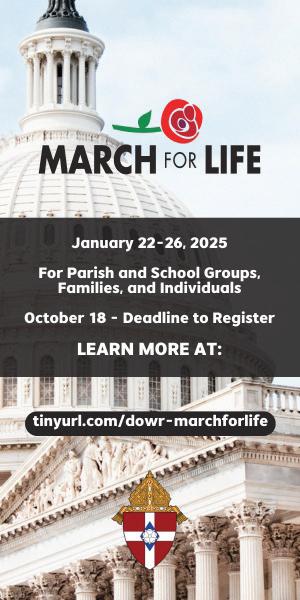
�mmaculate Heart of Mary Seminary welcomes seven new seminarians for the Diocese of Winona-Rochester this fall. Please pray for Joseph Bartosh, Aidan Holycross, Caleb Indahl, William Kahle, Thomas Lambrecht, Cole Larson and Cameron Vareberg as they discern God's calling.

Joseph Bartosh
Gree�ings, fellow bro�hers �nd sis�ers in Chris�! My name is Joseph Bartosh, and I am a new seminarian studying for the Diocese of Winona-Rochester. I am currently 20 years old and am in my first year of seminary formation, known as the propaedeutic stage.
I have been blessed with a wonderful and supportive family consisting of both my dad and mom, as well as a younger brother and sister. I come from the southwestern part of the diocese, from the small town of Heron Lake, and am a proud member of Sacred Heart Catholic Church in Heron Lake. Throughout the years, I have had many interests and hobbies ranging from reading, watching movies, being out in nature, and a personal favorite of mine is antique, statuary and art restoration. I had felt the call and attraction to the priesthood over a year ago and have felt so blessed by all the support and help along the way. I am especially grateful to our diocese for the ability to be a part of the High Calling Program, an interactive online program for young men across the country discerning the call to priesthood. The program was filled with a wide array of Christian topics and material given by truly remarkable priests, religious, professors, theologians, and philosophers, and I am beyond thankful for the ability to have taken part in this nine-month program.
This past April I was formally accepted into Immaculate Heart of Mary Seminary in Winona. On July 14, I moved to IHM and had the opportunity to grow with my brother seminarians and get to know them before the school year started on September 3. One of the big trips we took together this summer was a camping trip up in the Boundary Waters for a week, which was altogether a great experience. Really growing together as brothers and being completely immersed in God’s creation was such a gift. Another part of our summer program here at IHM was the morning formation classes with our great IHM formators who have great expanses of knowledge and insight into the faith. As I am writing to you all today, I have officially finished my first week of classes, and although I feel a little overwhelmed, I have a greater feeling of reassurance from our Lord. God is the way, and he always provides, whether we see it or not. He always has our back.
There is so much more I could share; however, I would just like to say thank you to everyone who has supported, encouraged, or prayed for me along this journey. It hasn’t been easy, but, with God at our sides, we can do anything!

Hello, re�ders of The Cour�er; my name is Aidan Holycross. No, you are not reading that wrong; Holycross is my last name, not my parish. The running joke in the sacristy is that if one day I become a priest (God willing), I will be Fr. Holycross! I am 20 years old and have lived in Rochester with my mom, dad, and three siblings. My home parish is Pax Christi, with pastor Fr. Sauer and parochial vicar Fr. Joachim. I want to thank everyone I have encountered at Pax for making me into the man I am today and for helping me foster my relationship with our Lord. Without the constant support and effort to create a great faith formation program, I probably would not be writing this.
One of my favorite hobbies is listening to or playing music! I am a drummer but I know how to play piano and guitar, and I can play “Smoke on the Water” on a trumpet. For sports, I enjoy playing spikeball and hockey (in the winter months). I have a little bit of a competitive side when it comes to sports, but I love a challenge!
Now I wish to share a little bit more about my faith life. In all honesty, as a kid, I dreaded going to Sunday Mass. My family was Catholic, but I made my mother's job difficult getting me to Mass. During my time in middle school, I had a similarly rebellious attitude. Finally, by the grace of God, my mother decided to pull me out of public school. I remember it being my last year of middle school, so I complained to my mother in hopes to not switch schools. Reflecting on my transition from public school to Catholic school, I now see that it was a pivotal moment when God saw me moving backward, slapped me in the face, and said, “Turn around!” I’ll never forget how happy I was in my eighth-grade year. I had never thought I would enjoy school without my old friends, but there was so much growth in that year. My next four years were spent at Lourdes High School, where I slowly but surely came to know God more and more. I was far from the person God wanted me to be, and, although I struggled, I had great teachers, friends, and, most importantly, my faith. I had (and still have) a deep desire to find out what the Lord's plan was (and is) for me. The first time I recall the Lord calling me to seminary was while I was serving Mass at my parish, Pax Christi, two years ago. I remember the priest lifting the Eucharist, and I thought to myself, "What if that were me up there?" Many times, I would sit in eucharistic adoration and say, “Lord, I want to want what you want for me!” I desired to know my vocation as we all do. Another pivotal moment was when Fr. Michael Churchill and a young, newly ordained priest planted the thought of priesthood in my mind. I was scared and wanted to shove the idea out of my brain. I thought, “I’m not worthy to be a priest. I want to get married and have a family. What if I'm not smart enough to be a priest?” I had all these thoughts, but Fr. Churchill encouraged me along, as did my good friend Cole Larson, from whom you will be hearing on the next page. The opportunity for service attracted me to the priesthood even more. From a very young age, I have desired to serve and help others around me.

Rev. Jason Kern Director of Vocations jkern@dowr.org
Having spent a couple of months at the seminary, I really can say it has been a huge blessing and another chapter for further growth in my life! My advice to any young man considering seminary is not to push the idea out of your mind. Chances are that if God calls you to enter this life, that's where he wants you to be! Remember that seminary is a place of discernment and that not everyone who enters the seminary will be called to the priesthood. To conclude, I want to thank my mom who helped me foster a deep sense of prayer, as well as everyone who has walked with me through my life. Thank you for your prayers and know of my prayers for you all too!

My n��e is C�leb Ind�hl. I am 18 years old and the second oldest of eight children. My family lives on a small farm outside Peterson, where we raise pigs, sheep, and chickens. We attend Mass at the Cathedral of the Sacred Heart in Winona. I love to read, spend time outside, and work with my hands. My dad has taught me a lot about woodworking, construction, and automotive repair. One of the biggest projects we have worked on was when we replaced the transmission in my older brother’s car. I have spent my free time teaching myself woodcarving and knife sharpening. Both are things that I love to do regularly as I continue to refine my skills. One of my favorite things to learn was how to sharpen and care for the knives and other blades we use around the farm.
I was taught about the faith and have believed that it is true for as long as I can remember. For many years of my life, being Catholic was something that made sense and I agreed with. It wasn’t until I went to Camp Summit and was on the Dream Team, and then Fiat, that I finally began to develop a personal relationship with Jesus and my faith. This was something I had wanted to do for years but had been unable to do. In my mind, what changed was how I viewed prayer and other aspects of my faith; instead of a relationship, I had looked at them as something that could be mastered if I just tried hard enough. During time on the Dream Team, I had the opportunity to learn about prayer in an experience unlike anything else I had ever done before.
I had been aware of the priesthood as a potential vocation for many years but started to give it more serious thought and prayer during the past three years, because of my experiences on the Fiat and Dream Teams. I attended a Come-and-See weekend in March of 2023 at Immaculate Heart of Mary Seminary, and, after that experience, I felt called to enter the seminary. Applying was a long process, and there were many times when I considered giving up, but, through the grace of God, I made it through the application and am eager to see what God’s plan for me is as I continue to discern his will at seminary.

William Kahle
Growing up in Aus�in, as a parishioner of St. Augustine’s Church, was where I first started to feel a call to the priesthood. I am a graduate of Pacelli Catholic High School in Austin. During my years of schooling, I was involved with the church in several ways. I frequently was an altar server at Mass on Sundays and for School Mass on Wednesdays. When I was in school, I had the blessing of attending Camp Summit a few times and a mission trip in Milwaukee. There on the mission trip was when God made it known to me that I may be called to the priesthood. Being surrounded by all the priests and having daily adoration, I had a desire to do that someday. Serving Mass was another big part of my discerning the priesthood. Being close to the altar while the priest was saying the Eucharistic Prayer, I was always completely immersed in what was going on.
After graduating from Pacelli in 2020, I moved to Iowa, where I worked as a meat cutter for a few years. Eventually, through much prayer and discernment, I reached out to the diocese’s vocation office and came for a visit to IHM. My visit to IHM was spiritually enriching, and, while I might have gone back home, my heart was still at the seminary. Back at home, I was wrestling with this experience. I knew that I needed to continue with the application process, but, at the same time, I knew a lot would change with that decision. I knew that my friendships would change a little bit; I knew that if I got accepted and moved in, I would be leaving my family; I would be leaving the job that I really enjoyed. But, with these thoughts, I also knew that if I did not act on the stirrings in my heart, I would regret it.
Through trust in God, I continued to apply for the seminary. The great thing was that, instead of resistance from family, friends and my co-workers, I was met with overwhelming support. There were still ups and downs during the time of doing my application, but I was upheld by these great people, and, most importantly, God lavished so many blessings upon me to be strong during that time. When I was accepted, I was filled with so much joy and peace.
Having been at IHM now for almost two months, I can say that I am so happy that I made the decision to apply. The relationships that I have with my brother seminarians have helped me to continue to grow as a man of God. My relationship with God has grown a lot through these past couple of months. Habits of working out, praying, studying, and much more have been fostered and continue to improve. Looking back at the last year when I was wrestling with whether to apply or not, I can say I made the right decision. If there is any advice I can give to any man who is discerning entering the seminary and is afraid, it is this: listen to the things that are going on in your heart; if you feel drawn to what is stirring and receive peace and joy from those movements, act on them and do not be afraid. Trust in God; he will never let you down.
Thomas Lambrecht
Hello everybody! If you told me a year ago that I would be sharing a short autobiography in The Courier, I never would have believed you. God is certainly good at surprises, and, to quote a good friend of mine, “When you let him in… oh boy!” My name is Thomas Lambrecht, and I am 19 years old. I grew up about 10 miles north of Byron with my parents, my two older brothers, and my older sister. Some of

my hobbies include board games, hiking, climbing and music, but, most of all, I love to be around other people. Growing up, my parents gave me a strong foundation in the Catholic faith. We went to Mass every Sunday, we prayed as a family, and they taught us a lot about the faith at home. My problem was that I thought of faith like another class in school. Focused purely on the intellectual side, I knew a lot about Jesus, but I did not know Jesus. Then, in high school, I found a real relationship with Christ in consistent prayer. This changed my life. During my freshman and sophomore years, I started discerning a vocation to the priesthood but ultimately felt that God was calling me to medical mission work. I had always wanted to become a doctor, so I pursued that path until the end of my senior year, when God called me to seminary again. After a lot of prayer, I decided to drop my other plans and give seminary a shot. It was 100% the right choice. In just the first couple of months, I have already seen major changes in my life. I am learning a lot about myself, and I can see God growing my trust in ways I did not even think were possible. It is really busy at times, but it is also really transformative (and a whole lot of fun). In all, I am so excited to see where God leads me this year, and I know that, no matter what, it is going to be great.
A quick word of advice to anyone discerning their vocation: give it a shot. Even if you do not walk away from seminary as a priest, you will walk away as a better husband, a better father, and a better man. The environment here is truly designed to transform lives, and, if you let God into your life and give him a chance to work… oh boy!

Hi, My n��e is Cole L�rson. I am from Rochester. I have one sister who is two years older than me, but we were always together playing outside. I grew up playing tennis and golf for school sports. I also enjoy trapshooting, which I started in my junior year. I graduated from Byron High School in the class of 2023. One of our parish priests invited me to go to a Comeand-See weekend at the seminary. I continued with my senior year not knowing for sure if I was ready to go to seminary and what I was being called to do in my life. I attended the University of North Dakota with a major focused on computer science, and was a member of the marching band. In the time I spent at UND, I was very involved with campus ministry and joined two campus bible studies. I got the opportunity to attend a Seek conference with thousands of Catholic college students, seminarians and priests from all over the United States. I started actively discerning again in November when I went to the Diocese of Fargo's vocation retreat weekend with friends from the Newman Center. I kept feeling the call that I needed to apply and just see how things went with getting into seminary. Some people were surprised by my decision to transfer colleges and discern priesthood, but I found the people who deeply care about you will
support you in whatever makes you happy and allows you to find purpose in your life.
This past summer, I had the experience of doing Totus Tuus in our diocese and traveling around meeting priests and sharing my love for the Lord with students who also wanted to grow in their faith and relationship with the Lord.
It feels very exciting to enter into the propaedeutic year this fall and to follow where God is calling me to love him more. I would say to anyone discerning their vocation: don’t do it alone, and take action by going on retreats and info weekends. Allow the Father to grow you in the way he wills, and be open to the calling of a religious vocation.

Hello re�ders! My name is Cameron Vareberg, and I am from Rochester. Before getting into my vocation story, I would like to give a little description of myself. I have grown up in Rochester all my life. I went to St. Francis of Assisi for kindergarten through eighth grade before going to Mayo High School, graduating in 2023. Afterward, I took a gap year, where I worked and took extra time to discern God’s call. Some of my hobbies include reading and collecting books, listening to music in analog formats (vinyl, cassette, CDs), working in the garage, and trying out new areas that catch my interest. I was also involved in a couple of activities in high school, namely Boy Scouts and band. As a little kid, I was very confident about what I was going to be when I grew up: a firefighter. Around third grade, that certainty about being a firefighter shifted to certainty about being a priest. I was so confident in my vocation that I only considered priesthood all the way through sixth grade before I started considering other options. I flew between options such as fighter pilot, park ranger and welder. What I wanted to do changed with the wind. Concurrently, my prayer life took the back seat as I became a lazy middle schooler, which was not beneficial for me or my vocation. As I went into confirmation prep, however, I began to take my faith more seriously. If I were to be an adult in the faith, shouldn’t I actually believe and act like one? Occasionally, as I began to pray more, the question of the priesthood would reappear. I would acknowledge it, but then promptly ignore it. In my junior year, I decided to go on a visit to IHM. Suffice it to say, I loved it. The fraternity, the prayer, everything was awesome. After the visit, though, I ignored any feelings I had and went on with my high school life, along with having a girlfriend my senior year. After a couple of months of dating, the idea of the priesthood began popping into my head, much more aggressively. After a few months of that, I decided to break up so I could “discern,” which was really just thinking nice thoughts about the priesthood. Later that year, after a Steubenville retreat and stewing on the idea for a while, I decided to contact Fr. Kern and finally began the process of applying to the seminary during my gap year. During the application, many things lined up to really solidify my decision, and I thank God for that! Although I have only been here for a couple of months, the amount of joy and peace I have received from the decision has been wonderful. Already my seminarian brothers are some of my best friends. To all those reading who are considering the priesthood, trust in God and take the plunge! It already has been so fruitful in my life, and no matter what direction God has for me the seminary is an important step in that path. Please pray for me as I continue this process of formation and discernment, and I appreciate all those who are praying for me already. Pax!
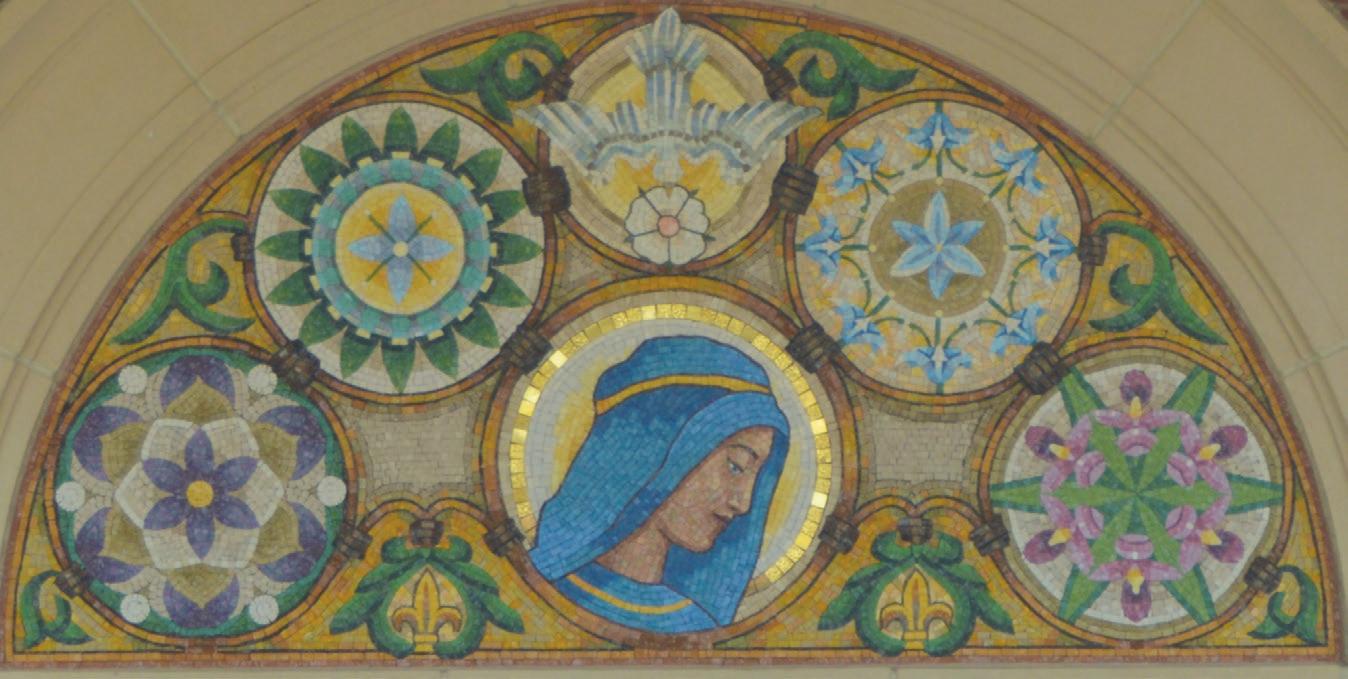

a blessing and ribbon cutting of the new 30,000 square-foot building at 2907 Jeremiah Lane NW before getting an opportunity to glimpse inside.
Bishop Robert Barron, leader of the Diocese of Winona-Rochester, said the designers and builders created a useful space of beauty. A stained glass rose window in the center’s chapel faces 19th Street Northwest, where the building sits.
Barron called the stained glass feature “jewel of the crown” on the building. Barron noted other details designers incorporated into the building such as floral-topped Corinthian-style columns at the main entrance.

1889-1894
On December 27, 1889, Father Joseph B. Cotter, pastor of the Church of St. Thomas in Winona, was ordained the first bishop of the new Diocese of Winona. Ten days later he was installed in the Procathedral of St. Thomas, which housed the Chancery until 1894.

“I wanted the whole beauty of it to be a sign to the community,” Barron told the crowd.
The $8-million project was announced in November 2022. The diocese broke ground on the project in April 2023. The building brings the diocese leadership, Catholic Charities and the diocese Catholic Schools administration under one roof. Currently, 49 employees work from the new building, said Mark Dockery, diocese director of development. Many are part-time employees. However, the number of people working there is expected to rise as some positions are filled after some Winonabased employees opted to early retirement over commuting.
For most people in the diocese, the move will be more convenient, diocesan leaders said.
“Rochester is a lot closer to Worthington, (Minnesota) than Winona [is],” Dockery said.

1894-1911
In 1894, a house was built at West Seventh and Cummings Streets which both served as Bishop Cotter’s residence and housed the Chancery offices. This house also served Bishop Heffron and his staff for a time and then became known as Assisi Hall and housed students of the College of St. Teresa before becoming a center for the College’s Art Department.

The diocese’s previous leader, Bishop John Michael Quinn, was at the opening, as were several benefactors in the project, including Jack and Mary Ann Remick who gifted the land and much of the funding for the project. Remick is one of the founders of Winona-based Fastenal and a retired IBM engineer. He has contributed millions into Catholic education and its causes including toward Lourdes High School and Saint Mary’s University-Rochester at Cascade Meadow, which are across 19th Street Northwest from the new pastoral center.
The project also represents a recent reversal in financial fortunes for the diocese from when the diocese was in bankruptcy and making payments into a settlement trust under an agreement between the diocese and church sexual abuse survivors.
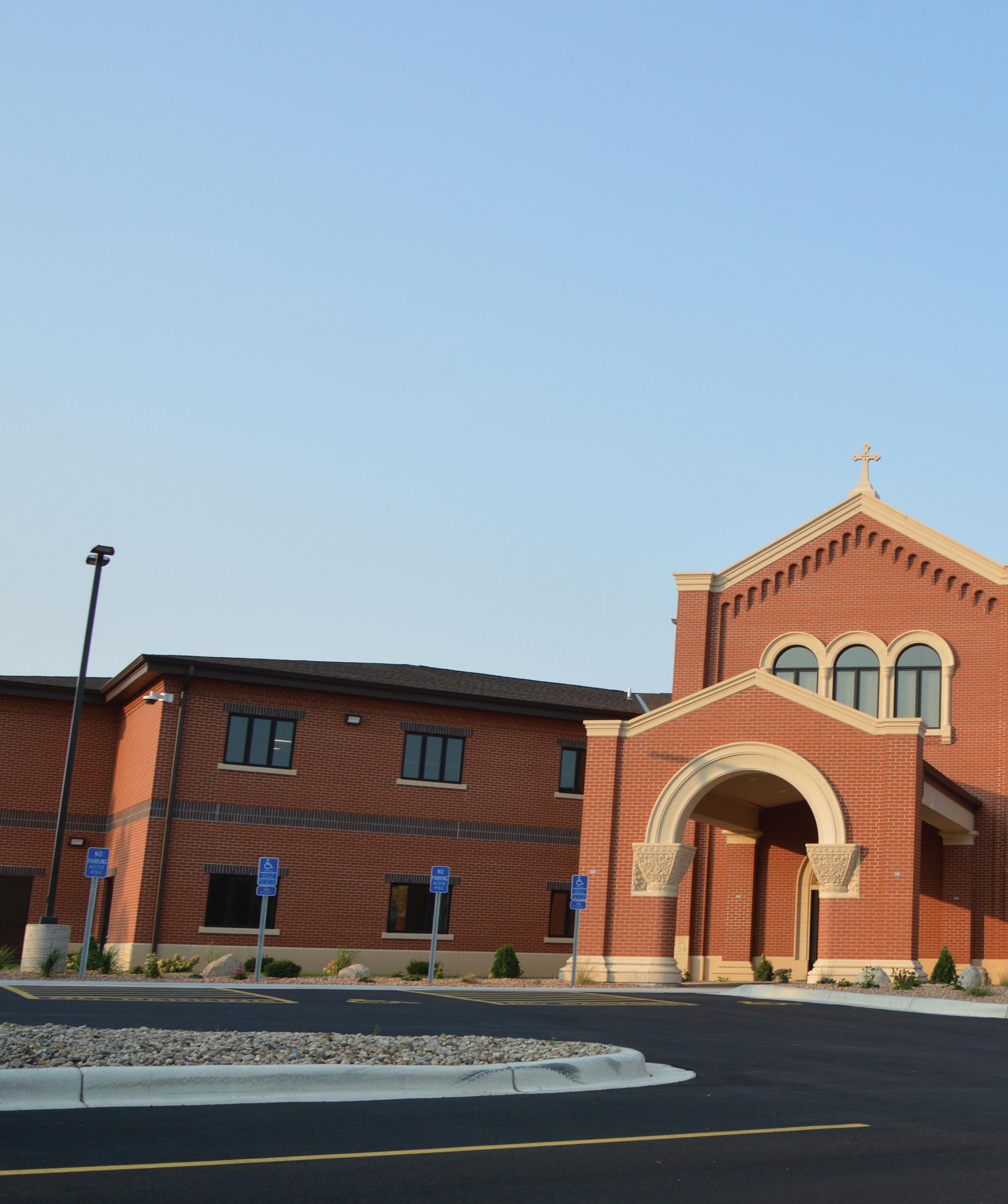
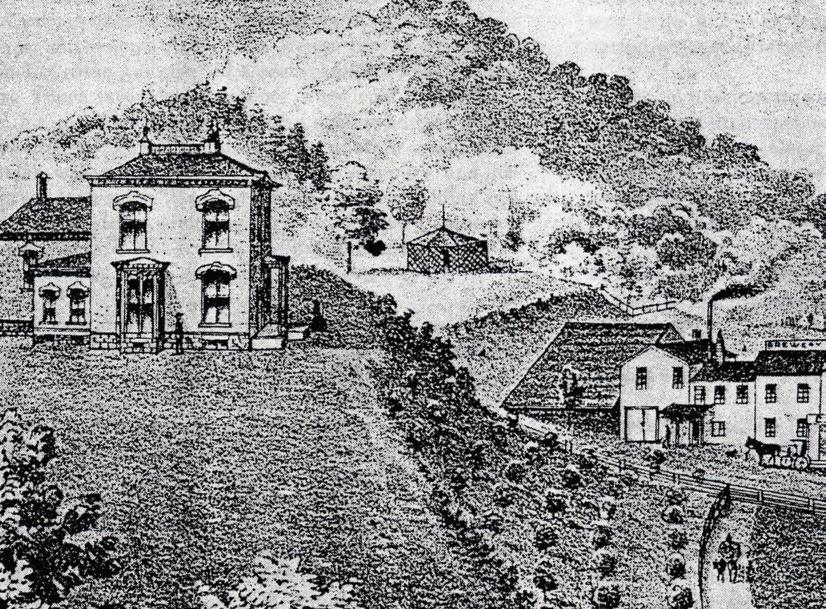
1911-1934
In 1911, Bishop Heffron made the C.C. Beck House on Terrace Heights the headquarters of the Diocese of Winona, as well as his residence. Bishop Kelly later also resided here. Eventually part of Saint Mary’s College campus, when the school was transferred from the Diocese to the Christian Brothers, it became LaSalle Hall and then Cotter Hall and served as a residence for various religious communities and students until it burned down in 2006.
Love (Amor)
The virtue of Love, willing, and acting on, the good of the other, is depicted by an image of the Virgin Mary. The portrait’s style references the great Romanesque and Byzantine traditions in which Christian subjects were depicted using angular forms and sharp contours. The style was chosen as a nod to the architectural idiom of the Chancery and the Chapel. Mary is shown wearing a red mantle as a symbol of love and above her forehead, a white rose symbolizes Winona, the “fairest daughter” and the Diocese in general.
Chastity (Castitas)
The virtue of Chastity is depicted by an image of a lamb. The lamb has traditionally been a symbol of purity and innocence and represents a chaste life. Departing from the traditional youthful depiction, the lamb here communicates the difficulty of real chastity.
Temperance (Temperantia)
The virtue of Temperance is depicted by an image of two chalices. One chalice is shown pouring wine into the other. This represents the quality of moderation and self-restraint in accordance with reason and faith.
There are more than 2,700 individual pieces of glass included in the rose window.
There is no wallpaper in the chapel. The walls have been stenciled and hand-painted throughout.
The chapel pews were donated from St. Vincent de Paul church in West Concord, which closed when its parish merged with St. John Baptist de la Salle, Dodge Center, in 2016. The Lunette Mosaic was shipped from Italy, where it was created.
The column capitals located in the circular drive-up contain symbolic elements including the Winona Rose (the symbol of the diocese) and ivy (representing immortality, fidelity and rebirth).
Currently, 49 people work full-time or part-time in the chancery offices serving our 90 parishes throughout the diocese.

When the Christian Brothers took over Saint Mary’s in 1933, the Diocese purchased the Abner F. Hodgins House at 275 Harriet Street, now on the National Register of Historic Places. This house served as both Bishop Kelly’s residence and the home of the diocesan offices until 1949, when Bishop Fitzgerald moved his residence down the street to 255 Harriet Street.
Temperance is further described by St. Thomas Aquinas not as the shunning of all pleasures, but rather “those that are immoderate, and contrary to reason”.
Justice (Iustitia)
The virtue of Justice is depicted by a traditional balance or scales. It is the condition of being morally equitable or fair, representing harmony, and involves consistently and firmly giving God and others their due. Justice is closely related to the practice of charity as it seeks to regulate relationships with others. This balancing act is represented by an even scale.
Diligence (Diligentia)
The virtue of Diligence is depicted by a cockerel or rooster. Diligence refers to a consistent and earnest effort towards accomplishing a particular task, regardless of circumstance. Specifically, a diligent life enables us to find the right balance in all our actions, acting on God’s call with fidelity and zeal. Roosters diligently rise with the sun (telling of the coming dawn of Christ); they are ever observant of their flock and territory, and routinely undertake grooming behavior.
Humility (Humilitas)

without sadness or resentment, in accordance with God’s will. It is a virtue that cultivates stronger faith and fosters sound judgement.
Prudence (Prudentia)
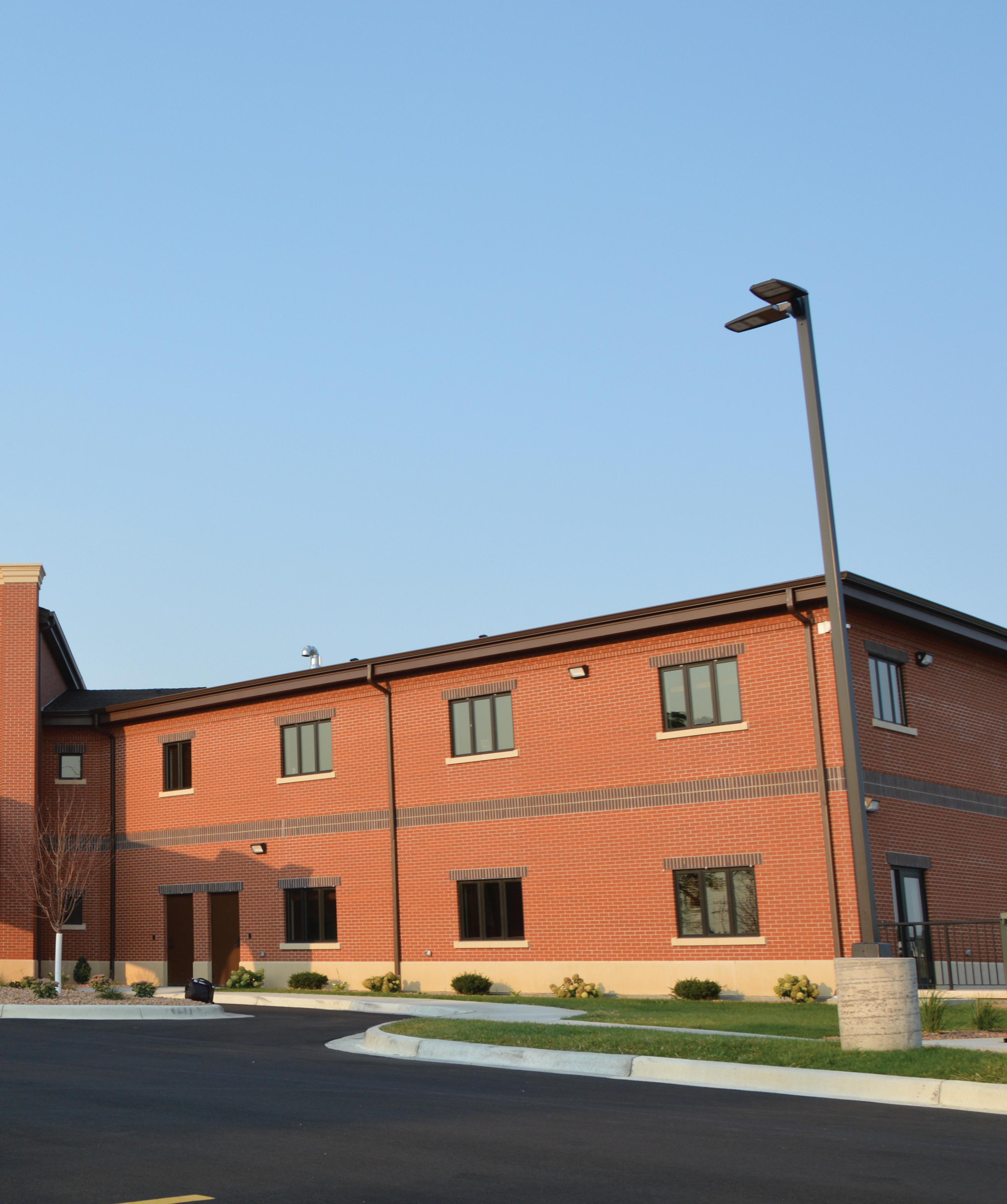
The virtue of Humility is depicted by an image of a broken crown. Humility is a cornerstone of holiness, with St. John Chrysostom calling humility “the root, the mother nurse, foundation and bond of all virtue.” It involves recognizing one’s own weaknesses and submitting oneself to God, which results in exaltation.
Patience (Patientia)
The virtue of Patience is depicted by an image of an hourglass. Closely linked with fortitude, the virtue of patience allows people to endure present trials

In 1976, the Diocese converted the former Cathedral convent at 55 W Sanborn Street to a residence for Bishop Watters and a Pastoral Center which served the faithful of southern Minnesota until this past June.
The virtue of Prudence is depicted by an image of a blue jay. Prudence is defined as the ability to govern and discipline oneself by reason, sagacity in the management of affairs, and skill and good judgement in the use of resources. In addition to being a local species, all these qualities can be found in blue jays. They are smart and shrewd, use tools and techniques, manage resources (in storing healthy nuts and collecting sources of calcium before laying eggs), are a keystone species credited with forest recovery and aiding other animals in survival, and they use their intelligence, strong bonds in a complex social system, vocal and visual methods to convey information to one another and other animals.
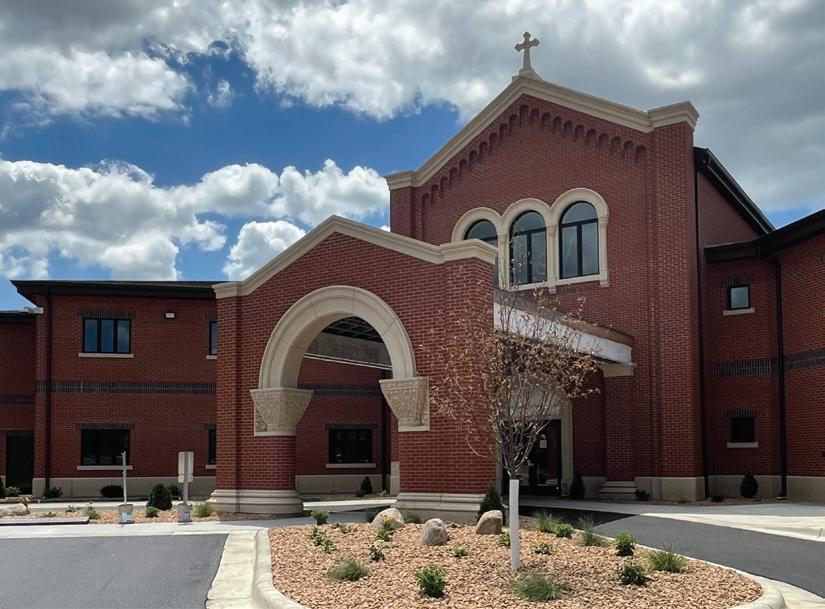
On January 23, 2018, by virtue of a decree from the Congregation for Bishops, the Diocese was renamed the Diocese of Winona-Rochester. 65% of the nearly 140,000 Catholics in the Diocese live in the area between Rochester and Mankato, with Rochester being the Diocese’s most populous city. By moving the Chancery to Rochester, the Bishop’s office will be better situated to serve Catholics across the Diocese.

By KATIE NETZEL
on Sunday, August 18, more than a dozen families from around the Diocese of Winona-Rochester and beyond gathered at Ironwood Springs Christian Ranch in Stewartville for a day of faith, fellowship and fun at the inaugural St. Joseph’s Family Camp. As the sun shone down on the daylong camp, participants chose from activities such as ziplining, swimming, fishing, wagon rides, and arts and crafts as well as a shared meal. The busy day of activities was bookended by Sunday Mass celebrated by camp chaplain Fr. Will Thompson, Vicar General for the Diocese of Winona-Rochester, and an afternoon Marian rosary procession led by Mother Apostle of
Joy and Sister Refugio of the Servants of the Lord and the Virgin of Matará.
The goal of St. Joseph’s Family Camp was to give families with a son or daughter affected by disability an opportunity to be supported in their Catholic faith while connecting in fellowship with other families and enjoying inclusive activities. This goal was certainly met if the smiles captured by volunteer photographer Matthew Brannon are any indication!
The camp was free for participants thanks to generous donations from the Catholic Foundation of Southern Minnesota, Knights of Columbus, and Pharmaceutical Specialties, Inc. along with the Diocese of Winona-Rochester’s Office of Life, Marriage & Family and volunteers from around the

Mass with Bishop Robert Barron, adoration and reconciliation were all central to the day, as each woman present allowed herself to bask in the gifts of the Holy Spirit she had already received.
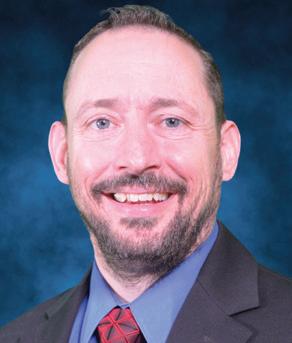
Peter Martin Director of Life, Marriage & Family pmartin@dowr.org

diocese. Given the overwhelmingly positive response from families and volunteers, the hope is to make this an annual event. If you would like to know more about how you can support initiatives for families in the Diocese of Winona-Rochester, please contact Peter Martin, Director of Life, Marriage & Family at pmartin@dowr.org.
Katie Netzel is a member of Pax Christi Parish in Rochester, and served as the camp coordinator for St. Joseph's Family Camp 2024.
encouraged the more than 100 women present to open their hearts wide to the Holy Spirit, to ask themselves what is keeping them from becoming the women God made them to be, and to give God full permission to free them from all shackles of sin and anxiety!
At the conference, the ladies were also able to venerate a first class relic of St. Thérèse of Lisieux and a relic of the True Cross (fitting, as the feast of the day was the Exaltation of the Holy Cross)!
Sr. Mary Micaela Hoffman, RSM, rounded out the day by emphasizing the important role of the Holy Spirit in guiding our lives in Christ. Women left the

Beloved conference thanking the team and speakers and bearing witness to the healing and grace this time brought to them!

greetings of peace!
Todd Graff Director of OCIA tgraff@dowr.org
In this month’s column, I want to introduce to you our new diocesan coordinator of adult faith and lay formation, Mr. Brian Hansen. As part of his responsibilities, Brian will be directing our diocesan Institute of Lay Formation. He began his service to our diocese on Wednesday, August 28, and is settling into his office at our new diocesan Chancery in Rochester. You will find an introduction to Brian and his family below in this article.
It has been a great blessing getting to know Brian initially through the interview process, and now with his presence at the Chancery. He is a true person of faith and Christian witness, and has a wonderful sense of the “joy of the Gospel!" And he brings a tremendous background to his work in the diocese (as you will see in his introduction).
Brian will be reaching out in the coming days and weeks to many of our diocesan Institute of Lay Formation alumni, to other lay leaders in the diocese, and to our priests and deacons as he seeks to learn about our diocese and the history and background of our Lay Formation ministry.
I will be supporting Brian as he begins his diocesan service, but I will also be transitioning to a part-time position serving as diocesan coordinator of Adult Christian Initiation (OCIA). As I’ve written in a previous column, I will continue to be around in the diocese, and I look forward to connecting with the people of our diocese through our Christian initiation ministry and at diocesan gatherings.
I feel truly and deeply blessed to have been entrusted with our diocesan Lay Formation ministry over these past 25 years, and I will continue to hold our Institute of Lay Formation community close to my heart and in my prayer. It has been a profound gift to work with the women and men who are part of our Institute community!
An Introduction to Brian
Brian Hansen is originally from Arlington Heights, IL, which is a northwest suburb of Chicago. He is the oldest of four siblings, all of whom attended Catholic elementary and middle school at Our Lady of the Wayside (Brian is a 2007 OLW graduate) followed by their attendance at Saint Viator High School (Brian is a 2011 SVHS graduate). Brian obtained his bachelor’s degree in religion at Carthage College (2015).
He then went on to serve the Catholic Church as a young adult missionary for two years with SPIRITUS Ministries, which is based in the Diocese of Green Bay and whose mission is to ignite the faith in Catholic youth through retreat ministry. During his second year of missionary work (2016-17), he met his nowwife, Elizabeth (married in 2020), who also served as a SPIRITUS missionary.
After doing missionary work, Brian then pursued, on a part-time basis, his master’s degree

in theology (2022) at Catholic Theological Union. Meanwhile, Brian committed himself to working in the various ministries of the Clerics of Saint Viator (CSV). This included serving as a campus ministry intern at Saint Viator High School (2017-18) and later being an in-house coordinator at Viator House of Hospitality (VHH), a residency that temporarily houses young migrant men who are seeking asylum in the United States (2017-19).
Brian was eventually offered the opportunity to serve as a theological educator at his alma mater, SVHS. Over the past five years (2019-24), Brian taught Sacred Scripture to high school sophomores, and Catholic Social Teaching and interfaith dialogue to juniors. Brian is now excited to share his skills, gifts, and life experiences in service of Holy Mother Church in his new role as Coordinator of Adult Faith and Lay Formation for the Diocese of Winona-Rochester.
Brian and Elizabeth are blessed to have two beautiful children, Elijah (August 2021) and Caeli (June 2024), and they hope to grow their family in the years to come. They’re excited to begin the next chapter of their family’s life in Minnesota; Elizabeth is originally from the state (Franklin - Diocese of New Ulm), and she is thrilled to be closer to her family.
Brian’s interests include theological reading, drinking coffee, sharing/listening to music and podcasts, and traveling abroad (Brian has been to India, France, Israel, Greece, and Turkey). Elizabeth’s interests are succulent and perennial plants, drinking tea, baking, and shopping at Aldi (especially the AOS) and farmers markets.
The Hansen family looks forward to living and being witnesses of Christ in the Diocese of WinonaRochester!
I have the privilege now to entrust our diocesan Lay Formation ministry, and the Institute of Lay Formation, to Brian’s care and leadership. And, I pray that God will bless and be with him as he takes on this ministry! Deo gratias!
Last month, I quoted Catholic writer, Ed Condon, at The Pillar, who wrote regarding our current political environment: “Nothing constructive comes from hate. And nothing good is communicated through hate.” I was reminded of his words when I read a story this week about a father’s response to his 11-yearold son’s tragic death.
Aiden Clark was killed last year in Springfield, OH, when a minivan driven by a Haitian immigrant struck his school bus. As reported in the local press, his father, Nathan, spoke recently at a Springfield City Commission meeting, “pleading with the community to stop using his son’s name as part of hateful statements toward Haitian immigrants.”
With his wife (Aiden’s mom) standing next to him, he said:
The last thing that we need is to have the worst day of our lives violently and constantly shoved in our faces…. They make it seem that our wonderful Aiden appreciates your hate, that we should follow their hate.
This tragedy is still all over this community, the state and even the nation, but don’t spin this towards hate. In order to live like Aiden, you need to accept everyone, choose to shine, make the difference, lead the way and be the inspiration. What many people in this community and state and nation are doing is the opposite of what we should be doing.
Being a father myself, I can hardly imagine this man’s - and his wife’s - pain and grief in losing their dear son. But I am touched and inspired by his demand that Aiden’s tragic death not be “used for political gain.” As Christians, we can never be led and guided in any way by hate. Never!
Let’s embrace Nathan Clark’s challenge “to accept everyone, choose to shine, make the difference, lead the way and be the inspiration.” God bless!
We know that, unfortunately, sometimes Christians do not spread the fragrance of Christ, but the bad odor of their own sin…. The fragrance of Christ emanates from the ‘fruits of the Spirit’, which are ‘love, joy, peace, patience, kindness, goodness, faithfulness, gentleness, self-control’ (Galatians 5:22). Paul said this, and how good it is to find a person who has these virtues: a loving person, a joyful person, a person who makes peace, a magnanimous person, not stingy, a benevolent person who welcomes everyone, a good person. It is beautiful to find a good person, a faithful person, a meek person, who is not proud… If we cultivate these fruits, and encounter these people, without us realizing it, someone will smell some of the fragrance of the Spirit of Christ around us.
-Pope Francis, General Audience, August 21, 2024
with the arrival of a new school year, the start of a new faith formation year follows in many, if not all, of our parishes. Please pray for all our parish directors, coordinators, catechists, and other faith formation and youth ministry volunteers. All of them have been on my mind and in my prayers the past couple of months because I know how difficult their task is in this current age.
At a recent fundraiser for the Mankato Newman Center, Monsignor James Shea questioned those in attendance about the value of a college student’s soul. “How much value must one single college student’s soul hold if the evil one is willing to do so much to attack it, and the Lord is willing to shed all of his blood for it?” His question was a reminder to me of the infinite worth of every human life and soul.
We are loved so much, and, because of that, we, especially our children, teens, and college students, are attacked most cun-
ningly by one who hates us with part of his being. In the face of that evil, God came to protect and redeem us and continues to do so every moment of every day. So many of our children and teens are longing to experience the healing and redemption that the Lord has to offer, but we adults, who are wounded as well, often feel ill-equipped and unable to share the Lord’s healing and redeeming power with them.
Parents and catechists play such an important role in the lives of the souls of our children and teens. Your brokenness, your refusal to give up, your resolve to keep running back to the Lord, and the witness you give to your own children and others is crucial to the eternal destiny of our children’s souls. It doesn’t have to be more complicated than that. As we begin this new formation year, as we get into the details of curriculum, content, and lesson planning, let’s remember what Pope St. Paul VI reminded us in Evangelli nutiandi, “Modern man listens more willingly to witnesses than to teachers, and if he does listen to teachers, it is because they are witnesses.”
Share the love you have received from the Lord with your children and with those whom the task of catechesis has been entrusted to you. Teach them how to grow in a relationship with him through
Submitted by JEAN MCDERMOTT
on Wednesday, September 11, students and staff from Pacelli Catholic School in Austin gathered on their campus greenspace in the shadow of St. Augustine’s Church for their annual 9/11 Prayer Service of Remembrance.

The prayer service is organized by Social Studies Department Chair Nick McGrath. McGrath’s motivation to host such an event comes from the reality that none of the students in our school buildings were alive for the tragedy of 9/11, yet the images from that day are still seared into the memories of their teachers and their parents. “Days like today are important to foster generational connection and understanding,” McGrath said. “Students will hopefully understand why their parents think today is so solemn and important. And hopefully our students will begin to understand that 9/11 has so dramatically impacted the world they live in too; they just don’t realize it because it’s all they know.”

The 9/11 prayer service each year is open to the public and was well attended by members of the Austin community and St. Augustine, St. Edward and Queen of Angels parishes. The prayer service featured musical selections from the Pacelli Choirs, prayer from Father Andrew Beerman, words of reflection from Mr. McGrath, as well as a 21-gun salute from the Austin American Legion and VFW Color Guard. The centerpiece of the event each year is the “Field of Honor” which is a display of 2,977 American Flags - one in honor of each person who died on 9/11. This year’s Field of Honor was put on the front lawn of St. Augustine’s Church near the school, and members of the community have taken note as well.
Students at Pacelli are also using 9/11 to turn tragedy into service by raising money for the Tunnel 2 Towers Foundation. Tunnel 2 Towers was founded by the brother of a fallen NYC firefighter in the wake of 9/11. Tunnel 2 Towers raises money

Zach Rawson Director of Youth Ministry & Faith Formation zrawson@dowr.org
meeting him in Sacred Scripture and in prayer. Invite them into a life of discipleship by walking with them and showing them how you live with and relate to him. Remind them of the power of the Sacraments, especially Reconciliation and Penance and the Eucharist. Be a witness of what it looks like to persevere through your own brokenness and sinfulness. Bring them close to the Divine Physician who heals all wounds and redeems all ills.
The soul of even one child is of infinite value, so much so that there is a cosmic battle of epic proportions raging in the spiritual realm and spilling over into the physical. Parents and catechists, your witness is more valuable than is often acknowledged. Know of my prayers for you, for your children, and for the task of catechesis which has been entrusted to all of us in every parish of our diocese.
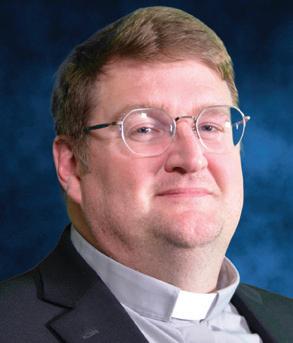
Deacon Sean Costello Superintendent of Catholic Schools scostello@dowr.org
The s�uden�s of S�cred He�r� School in Adams gathered in the church for a photo on Patriot Day, September 11, 2024. In the 2024-25 academic year, the school's 121st year in existence, its student body consists of 100 students in grades K-8!
Photo and caption submitted by FR. JIM BERNING, pastor of Sacred Heart, Adams; St. John the Baptist, Johnsburg; St. Peter, Rose Creek; and Queen of Peace, Lyle.

to provide mortgage-free homes to families of fallen first responders and gold star families from the War on Terror which resulted from the 9/11 attacks. If you would like to join Pacelli’s fundraising efforts, you can do so on the Tunnel 2 Towers website: T2T.org.
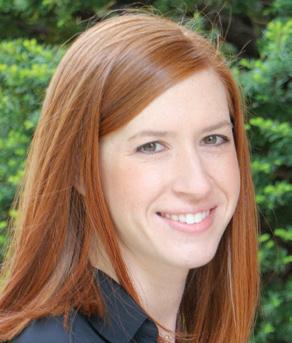
Sarah Vetter, LISW Director of Child & Family Services Catholic Charities of Southern Minnesota
c atholic Charities' 18th annual Baby Bottle Campaign kicks off on October 6, Respect Life Sunday, and runs for the entire month of October.
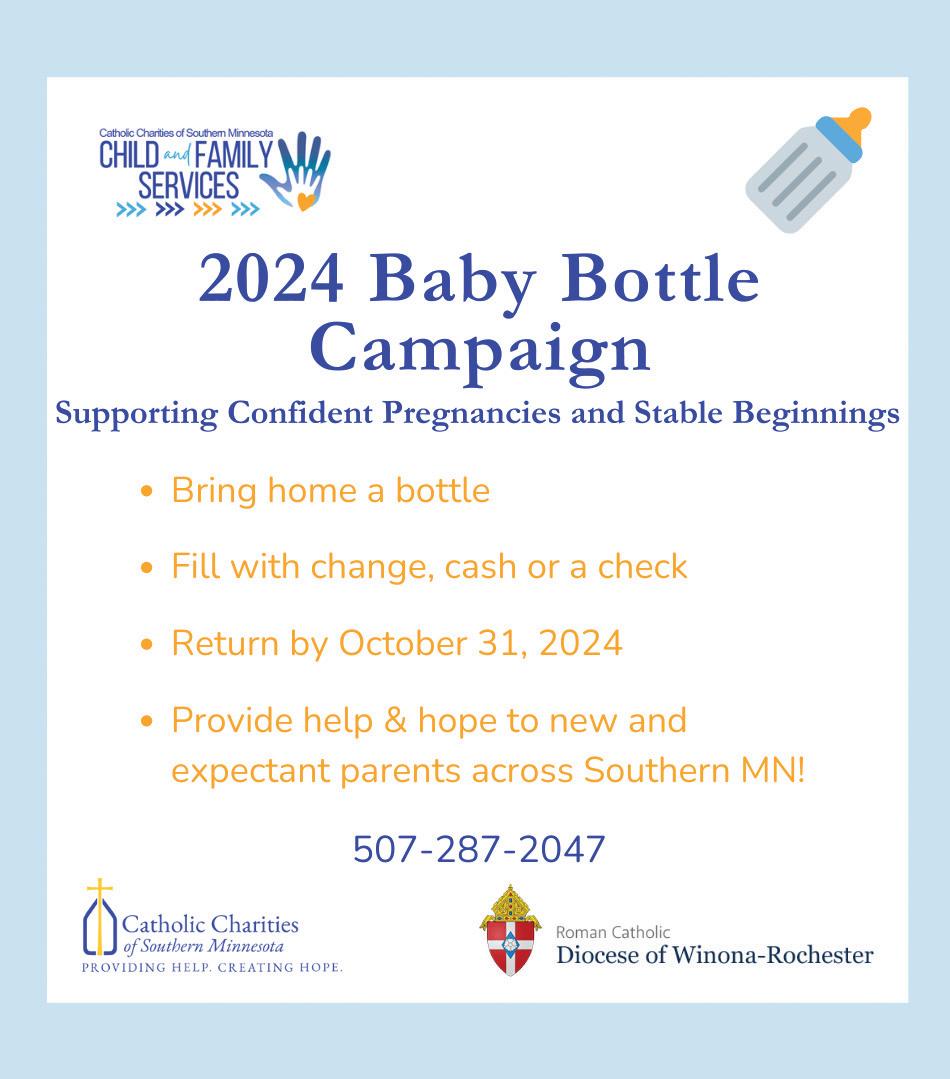
The Campaign raises funds for Catholic Charities' Mother and Child Assistance Fund while also raising awareness of the services for new and expectant parents across the diocese.
Catholic Charities’ Mother and Child Assistance Fund serves as a safety net for pregnant women and families with new babies. Families can apply for one-time financial assistance to help pay rent or utilities. While applying for financial assistance, new parents also receive education on budgeting and perinatal mental health, receive free baby items such as car seats and portable cribs, and can access Catholic Charities’ diaper banks for free diapers and wipes on a monthly basis. Research has shown that the main reason women choose abortion is because of financial stress. By meeting tangible needs for women in crisis, along with support and education, Catholic Charities instills confidence in new mothers and creates hope for the future.
Allison* is a young single mother who came to Catholic Charities to request help due to her electricity having been shut off. She had been working prior to giving birth, but her baby girl was born very early and had been in the NICU for several months. Allison was not able to work until her baby was released from the hospital, which caused her to fall behind on bills and ultimately led to her electricity being disconnected. Catholic Charities was able to pay the $500 she needed to get her electricity turned back on so she and her baby had a safe place to go home to every night. Allison plans to use Catholic Charities diaper bank for free diapers and wipes to offset some of the costs of raising a baby while she continues to get back on her feet. She expressed gratitude to her social worker and the program that made this help possible.
By DEACON ROBERT YERHOT, MSW
�oday, every day, without ceasing, God’s love is readily available. How will I experience God’s love in a particular manner today?
I could consider the depth of a mother’s love, the strength of a father’s care, the fidelity of friends, the bond of brothers; for me, these are lived realities, giving me a glimpse of the mag nitude of God’s love.
Yes, God’s love is so enormous that it is like an iceberg nearly completely sub merged in water. I see only the tip. I readily recognize only the fraction. To go deeply, I must be able to see, not only with the eyes of my body, but also with the eyes of faith which penetrate the depths.
God’s love often comes in hidden ways. It is subtle, a mere whisper at times, a slight breath. Nothing I can imagine is adequate in description, for it is too vast. Volumes have

been written attempting to do so. Yes, I use human terms and images which move my heart to some extent, but they cannot definitively convey the
God wants us to thrive, not die, and to live eternally. He says, “My grace is enough for you. It is available to you now. Be still and receive what I give.” If I wish to see the face of God, the source of all love, I look to the assumed humanity in Jesus. How often I wish to see, touch, and speak with Jesus! Equally often I am reminded that I can see, touch, and speak with him now in the lives of the people to whom I am sent as a deacon. I can recognize in their faces his love ever present to me. In the people through whom he has chosen to reveal himself and to whom I have been sent - the unborn, the poor, the condemned, the hungry, and the homeless - I begin to accept God’s love.
I recognize him in the Eucharist and in all the sacraments. Most urgently today, I recognize him on the cross. Indeed, the cross is the great sign of mercy, love, and obedience. From the cross mercy flows, grace abounds, love is shown, humility lived,
Jasmine* was very sick at the beginning of her pregnancy and lost her job after missing too much work. Her husband’s hours had recently been cut and the family was worried about paying all of their bills. The couple applied for the Mother and Child Assistance Fund at Catholic Charities, which was able to pay half of their August rent. This help gave Jasmine’s husband time to find a better paying job and create a plan for the future. They will be eligible to receive a portable crib and car seat for their baby so they are fully prepared by the time he is born this winter.
Please consider joining with us to support new and expectant parents like Allison and Jasmine across the diocese! You can pick up a bottle from your parish or local Catholic Charities office, fill it with change or a check during the month of October, and return it to your parish. All the funds raised will be used to help young families with financial needs. If you are unable to pick up a bottle, you can still support the campaign! Please mail your donation directly to Catholic Charities Baby Bottle Campaign, PO Box 379, Winona, MN 55987, or give online at ccsomn. org/donate and designate your donation to the Baby Bottle Campaign. Each donation supports a confident pregnancy and a stable beginning for a new little one. Thank you for supporting the gift of life!
*Names have been changed to protect confidentiality.

Deacon John Hust
Director
of
the Permanent Diaconate jhust@dowr.org
forgiveness given, and fidelity consummated. The cross was the boast of St. Paul and it is my only permitted boast. Though a scandal to the unbeliever, derision to earthly powers, and mere foolishness to so many, the cross is ever present and in it I find God’s love and grace which bursts forth into the brilliance of the resurrection. I can and must witness to the cross. I apprehend, in it, the love of God,
The cross is the image that bests captures the immensity of God’s love and grace given to me. The cross has sustained the hope of generations, and it sustains me. In it, in the lives of so many to whom I am sent as a deacon, I encounter God’s love.
Gaze upon the crucifix! I challenge you to do so. Every day, gaze on the crucifix and allow God’s love to penetrate your life. If you do not have a crucifix, get one. Spend 15 minutes a day simply gazing upon it. Your life will change. May God bless each of you.
Deacon Robert Yerhot serves the parishes of St. Mary in Caledonia and St. Patrick in Brownsville.
By MINNESOTA CATHOLIC CONFERENCE
civility has a bad name these days, especially in an election year. It is seen as being weak, or an unwillingness to “speak truth to power.” If you are not outraged, you are not paying attention, as the saying goes.
At the Capitol, there has been of late a “civility caucus” of a few well-meaning members who try to forge constructive engagement across party lines and commit to fostering a tone that is about bringing light and not heat. Sadly, the end of the last session was not a ringing endorsement of the civility caucus’s success.
But why be civil? Especially when one is not met with civility in return?
Civility is a necessary precondition of politics that is ordered toward the common good. It is also a moral imperative - for as Catholics, we believe our neighbors are created in the image and likeness of God.
The word 'civility' comes from the same Latin root as 'city,' which is civitas. Civility refers to the respectful way citizens engage with one another as they participate in the activities of the city - essentially, the 'politics' of working together to promote the common good. This idea of a city is captured by the Greek word polis.
Civility is essential because we share a common life and common goods. Politics, at its core, is about

fostering civic friendship marked by civility - a true friendship that seeks the genuine good of others and works together for the common good.
The Church builds on the classical understanding of politics as civic friendship by helping us recognize our shared humanity and destiny. We don't just live together in the same space; we are more than that. We are all made in the image and likeness of God and have a common father, who art in heaven. This makes us brothers and sisters, and we should treat each other as such.
As a human family, we must stand in solidarity and care for each other’s needs and struggles. When one of us suffers, we all suffer. To address the challenges humanity faces, everyone must take part in the work of community life - what we call politics. When some of our brothers and sisters are excluded from community life (socially, politically, or economically), it is our responsibility to bring them in. And in community, we are all called to participate in shaping our shared life by contributing our unique gifts to the common good.
In that common work, we need to speak to each other in productive ways that open hearts and minds. Rational discourse is premised on the idea that you have dignity, gifts to share, and a perspective worth considering, and I should listen to you as a brother or sister.



Civility does not mean we need to agree. In fact, civility is lived in the context of disagreement. It’s not about simply being 'nice' or avoiding conflict, nor does it exclude righteous anger. Instead, civility recognizes that conflict often stems from competing values, but it seeks to listen attentively and not just try to split the difference. Civility works to create a dynamic where everyone can win.
For democracy to survive, we cannot divide each other into factions - friends or enemies. We are often led to believe that our neighbors - even our family members - are our enemies. Think of children denouncing their parents on social media or friendships breaking over political differences.
The Enemy divides us, but Christ calls us to love our enemies. That is why our true enemies are not those on the other side of the political aisle but rather the spiritual powers and principalities of this world. In politics, we must see one another as friends, not enemies, understanding that the line between good and evil doesn’t lie between 'Us' and 'Them' but runs through every human heart. As G.K. Chesterton quipped: “What’s wrong with the world? I am.”
By entering the public arena with a commitment to civility, we can transform politics from a power struggle between opposing sides into the shared task of building the common good.
The Minnesota Catholic Conference has been the public policy voice of the Catholic Church in Minnesota since 1967. The voting members of the MCC's board of directors are Minnesota's Catholic bishops.
Congratulations to the following parishes, who have met their goals for the 2024 Catholic Ministries Appeal:
St. Charles Borromeo St. Charles St. Columban
Columbanus
St. Edward
St. Felix
St. Ann
St. Ann
St. Bernard
St. Bridget
St. Casimir
St. Finbarr
St. Francis of Assisi
St. Ignatius Spring Valley
St.
St. Joseph
St. Patrick
LeRoy
St.
St. Rose of
St. Thomas More Newman
Sister Mary Frederick, OSF, 87, a Franciscan Sister of the Congregation of Our Lady of Lourdes, Rochester, died at Assisi Heights on Saturday, August 31, 2024.

Mary Elizabeth Frederick was born on September 9, 1936, in Mankato to Raymond and Agnes (Hagen) Frederick. She entered the Sisters of St. Francis in 1955, received the name of Sister Dion, and made perpetual vows in 1960. She received her Bachelor of Science in elementary education from the College of St. Teresa, Winona, in 1967.
Sister Mary served as a teacher in Watertown, SD; Santa Ana, CA; and many schools in Minnesota for 37 years, 1957-94. From 1996 to 2003, she served at Assisi Heights as a team member for the Assisi Community Center (1996-2003) and a food service assistant (2004-09). In 2010, Sister Mary served as the receptionist at the Gift of Life Transplant House in Rochester before her retirement.
Sioux Falls - ODLT Channel 7 at 7 a.m.
Sioux City - KPTH Channel 44 at 8:30 a.m.
Mankato - KEYC Channel 12 at 7:30 a.m.
Survivors of Sister Mary Frederick include her Franciscan Sisters, with whom she shared life for 69 years; six brothers: Jerome, Roger, Leonard, Bernard, Dennis, and Mark Frederick; two sisters: Marge Karnick and Sister Diane Frederick; and many nieces and nephews. She was preceded in death by her parents and infant sister, Maire Therese Frederick.
A Resurrection Liturgy was held at Assisi Heights on Wednesday, September 11, 2024, followed by burial at Calvary Cemetery.
Memorials are suggested to the Sisters of St. Francis, Office of Mission Advancement, Assisi Heights, 1001 14th St. NW, Rochester, MN 55901.
Sister Monica (Mary Linus) Grathwohl, SSND, 92, died September 2, 2024, at Benedictine Living Community - Windermere in Shakopee. Her funeral Mass was celebrated September 9 at Windermere Chapel with Father John Kunz as presider, followed by burial in the Good Counsel Cemetery, Mankato.
Sister Monica was born in 1932 on the family farm near Searles. She attended Good Counsel Academy for her high school education and

graduated in 1950. She entered the School Sisters of Notre Dame in Mankato that same year and professed First Vows in 1953. She taught and ministered as a principal in several Minnesota, Iowa and Washington State Catholic schools. Much of her active ministry was in the state of Iowa; however, she spent the school years from 1973-76 as teacher and principal at St. Casimir School, Wells. There, as well as in other areas of ministry, she was active in parish and diocesan organizations. In her early retirement years, she served as evening receptionist at Guardian Angels Parish in Oakdale and then retired to Good Counsel Hill in 2011.
Sister Monica moved with other School Sisters of Notre Dame to Shakopee in the fall of 2022.
Sister Monica is survived by her brother Peter and his wife, Barbara; nieces and nephews; and her sisters in community, the School Sisters of Notre Dame and SSND Associates. She was preceded in death by her parents, Peter and Bertha (Lieb); her sister, Grace Windler; and her brothers Norman and Linus. A longer obituary and a recording of her funeral is available at ssndcp.org/obituaries.
Digital Channel 12.2 or Charter Channel 19 NEYC at 9:30 a.m.
Digital Channel 7 (DirecTV) or Channel 11 (DISH) KMNF at 9 a.m.
Rochester/Austin/Mason City
KIMT Channel 3 at 7:30 a.m.
MyTV 3.2 at 9 a.m.
Twin Cities - WFTC Digital Channel 29 or Channel 9.2 at 11:30 a.m.
Southeastern MN - HBC Channel 20 at 3 p.m. (repeated Wed. at 3:30 p.m.)
Winona/La Crosse/Eau Claire - WLAX/WEUX Channel 25/48 at 7:30 a.m.
and on our website, dowr.org (click "Weekly Mass")

The Annu�l M�rri�ge Annivers�ry M�ss, hosted by St. John the Baptist Parish in Johnsburg, was celebrated on Saturday, September 7, by Bishop Barron. More than 50 couples came to be honored for their faithfulness to the vocation of marriage. Couples of all ages were present and received a special blessing during the Mass, which was followed by a beautiful reception, at which time each couple received a certificate commemorating Bishop Barron’s Episcopal Blessing on their marriage.
Photos by EMILY SMITHLEY.


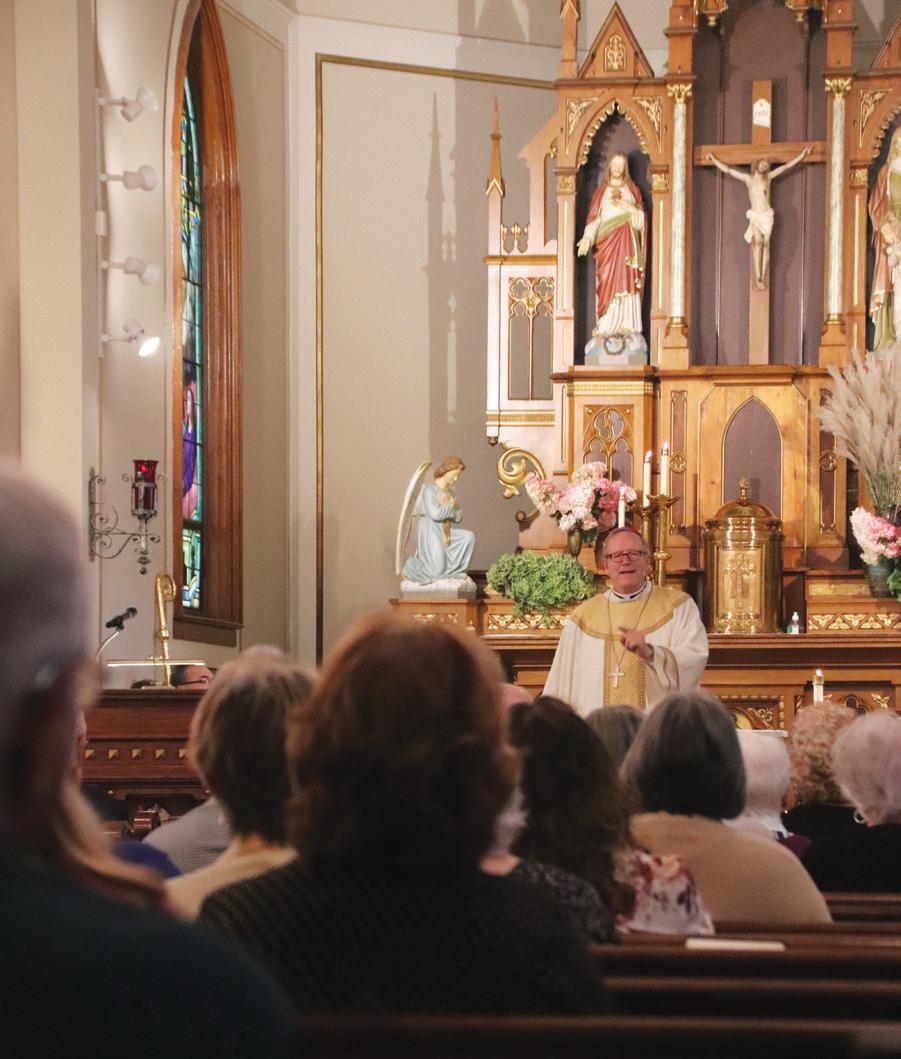
By SHELLY HOLT
� he annual Winona-Rochester Diocesan
Council of Catholic Women Convention “Joy in the Journey” will be held on October 12, the feast day of Blessed Carlo Acutis, at the Church of the Resurrection in Rochester. Call to register: 507-381-2842. The $30 Registration fee can be paid at the door.
Blessed Carlo Acutis, the first Millennial saint, will be canonized on October 20, 2024. Carlo was an Italian teenager known for his deep faith and dedication to the Church. Born in 1991, he was a computer enthusiast and used his skills to document Eucharistic miracles around the world. Despite his youth, he lived a life of piety and charity, helping those in need and attending daily Mass. Diagnosed with leukemia in 2006, he died the same year at the age of 15. His life of holiness and his use of modern technology for evangelization led to his beatification. Blessed Carlo said, “The Eucharist is the highway to heaven.”
“We are all called to evangelize, and thanks to the gift of the Holy Spirit, we are well-equipped for this mission. It may not mean spreading the Gospel in a foreign land or going door-to-door with the Good News - and it may require overcoming some fearsbut the Lord is asking each of us to step out of our comfort zone and evangelize one-on-one. There is someone in your life right now whom Jesus longs to call to himself. He wants to spark a relationship with them and bless them with his sacraments. In this Year of Mission, Catholics across the U.S. are saying “yes” to a special form of heart-to-heart accompaniment called the Walk With One initiative. This is your opportunity to be God’s instrument in the life of another person. Imagine how our families, neighborhoods, and country will be
transformed if every active Catholic answers this call! Let us look to him and learn from him in the year ahead.” eucharisticrevival.org/ walk-with-one.
The National Council of Catholic Women Mary’s Garden Campaign began on September 8 (the Birth of Mary) and ends on May 31 (Feast of the Visitation). 25 Years ago, NCCW raised money through individuals and affiliates to create Mary’s Garden at the National Shrine of the Immaculate Conception in Washington, D.C. Back in May, the statue of Mary was vandalized, and the garden needs some repair. Our goal is to raise $80,000 to assist with the renovations of this garden. We look forward to celebrating the rededication of Mary’s Garden at the National Shrine of the Immaculate Conception in Washington, D.C., sometime in late spring. As we celebrate the 25th Anniversary of Mary’s Garden, we invite you to consider giving a donation to assist with the rebuilding of this significant NCCW project. You can go to NCCW.org to donate online or send your donation to National Council of Catholic Women, 10335-A Democracy Lane, Unit 201, Fairfax, VA 22030.
October is the month we recognize individual councils during Council of Catholic Women Sunday. How does your council celebrate your members?
October is also Domestic Violence Awareness Month. This is a special time to mourn those who have died because of domestic violence, celebrate survivors, and work to end the violence. The National Council of Catholic Women developed the Women Healing the Wounds program and resources can be found on the NCCW website.
Shelly Holt is the president of the WinonaRochester Diocesan Council of Catholic Women.

October 13, Sunday
St. Columban Church, Preston, will serve a carry-outonly pork dinner from 10 a.m. - 1 p.m. or until gone. Natural pork loin, mashed potatoes, gravy, dressing, corn, cole slaw, applesauce, buns and pie. $15 per dinner. 408 Preston St. NW in Preston.
St. Patrick Church, West Albany, will hold its Fall Chicken BBQ Dinner. Grilled chicken, cheesy potatoes, corn, dinner roll, bar, beverage. 1/2 chicken dinner $15. 1/4 chicken dinner $10. Take outs available. Proceeds benefit St. Patrick's Church Fund. 30932 Hwy 60 in Millville.
October 20, Sunday
St. John Nepomucene Parish, Winona, will hold its annual Fall Festival from 11 a.m. - 3 p.m. in the Basilica of St. Stanislaus Kostka Church Hall, 603 E 4th St in Winona. Lunch, Big Ticket (drawing at 3 p.m.), quilt & cash raffle, silent auction, gift card raffles and cupcake walk. Handicap accessible. Public is welcome.
October 27, Sunday
St. Agnes Church, Kellogg, will serve a Fall Turkey Dinner 11 a.m. - 1:30 p.m. or until gone. Turkey (with all the trimmings) & raffles in the parish hall. Country store & bake sale in the parking lot behind the church. 128 E Belvidere Ave in Kellogg.
St. Mary Church, Caledonia, will hold its 58th Annual Holiday Bazaar, starting at 11 a.m. Roast beef dinner served in Holy Family Hall 11 a.m. - 1 p.m., or until gone. Roast beef, mashed potatoes, gravy, corn, dinner roll, dessert & beverage. $15 adults. $10 kids 12 & younger. Dine in or carry out. Live & silent auctions 2 p.m. in the school gym. Big Ticket Raffle drawn at 4 p.m. (Grand Prize is $5,000!) $20 per ticket. Event also includes kids' games, change tables, sweet shop, stage raffle, junk food walk and luncheon. 453 S Pine St. in Caledonia.
November 2, Saturday
Crucifixion Parish, La Crescent, will serve its 46th Annual Roast Beef Dinner in the school auditorium from 3:30-7 p.m. Homemade roast beef & gravy, mashed potatoes, cole slaw or apple sauce, carrots vichy, roll, apple or pumpkin pie slice. Tickets sold at the door for $15 each (dine-in or carryout). Kids 6 & younger dine in for free. All proceeds benefit Crucifixion School. 420 S 2nd St. in La Crescent.
